ESC 24: Hot Line & Late-breaking Science Video Collection
Published: 15 August 2024
-
Views:
 2985
2985
-
Likes:
 7
7
-
Views:
 2985
2985
-
Likes:
 7
7
-
 Up Next
Up Next -
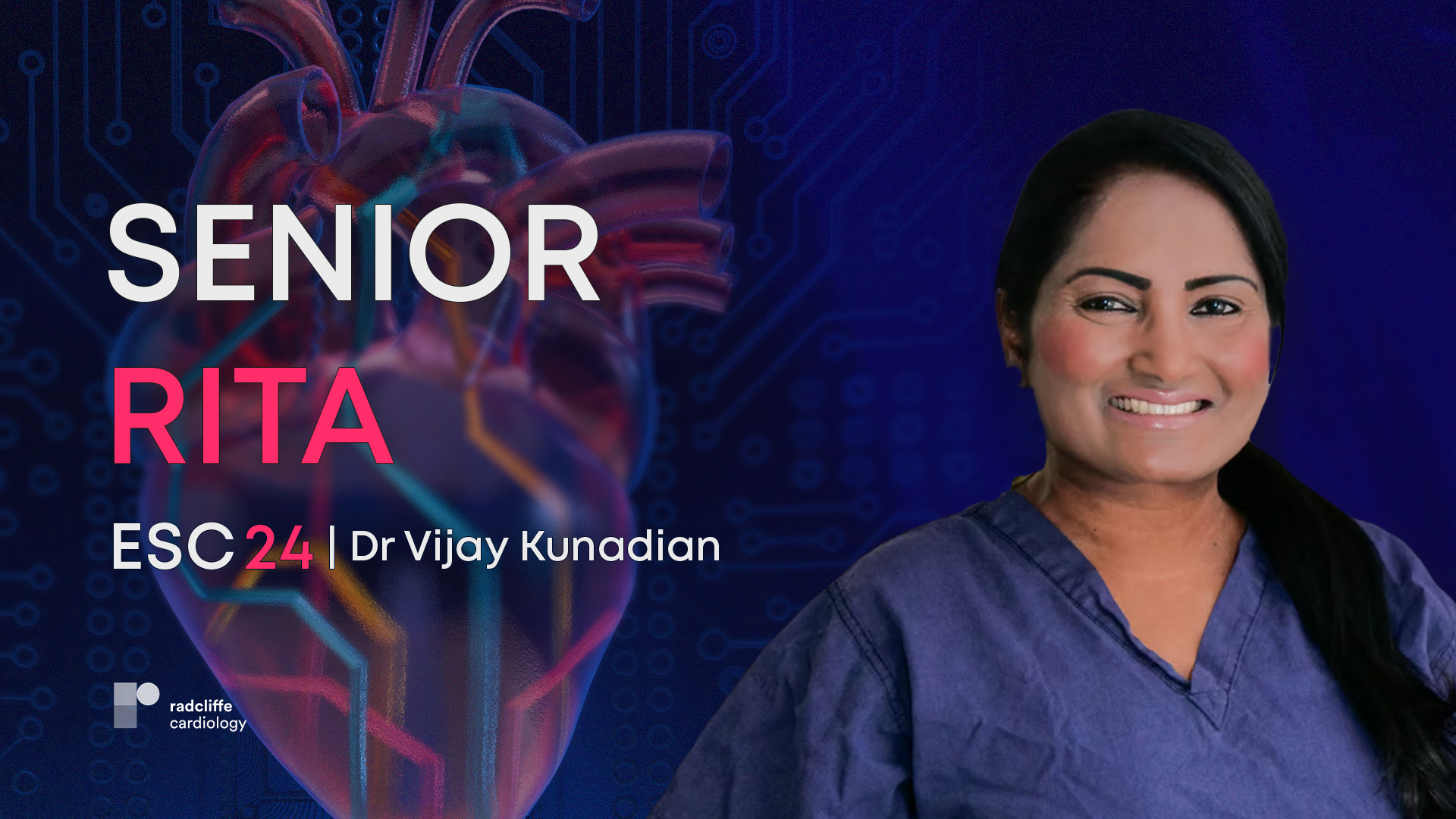 8m 17sPart 4 | Session 8 SENIOR RITA: Invasive Vs Conservative Strategy for Older Patients with MI
8m 17sPart 4 | Session 8 SENIOR RITA: Invasive Vs Conservative Strategy for Older Patients with MI -
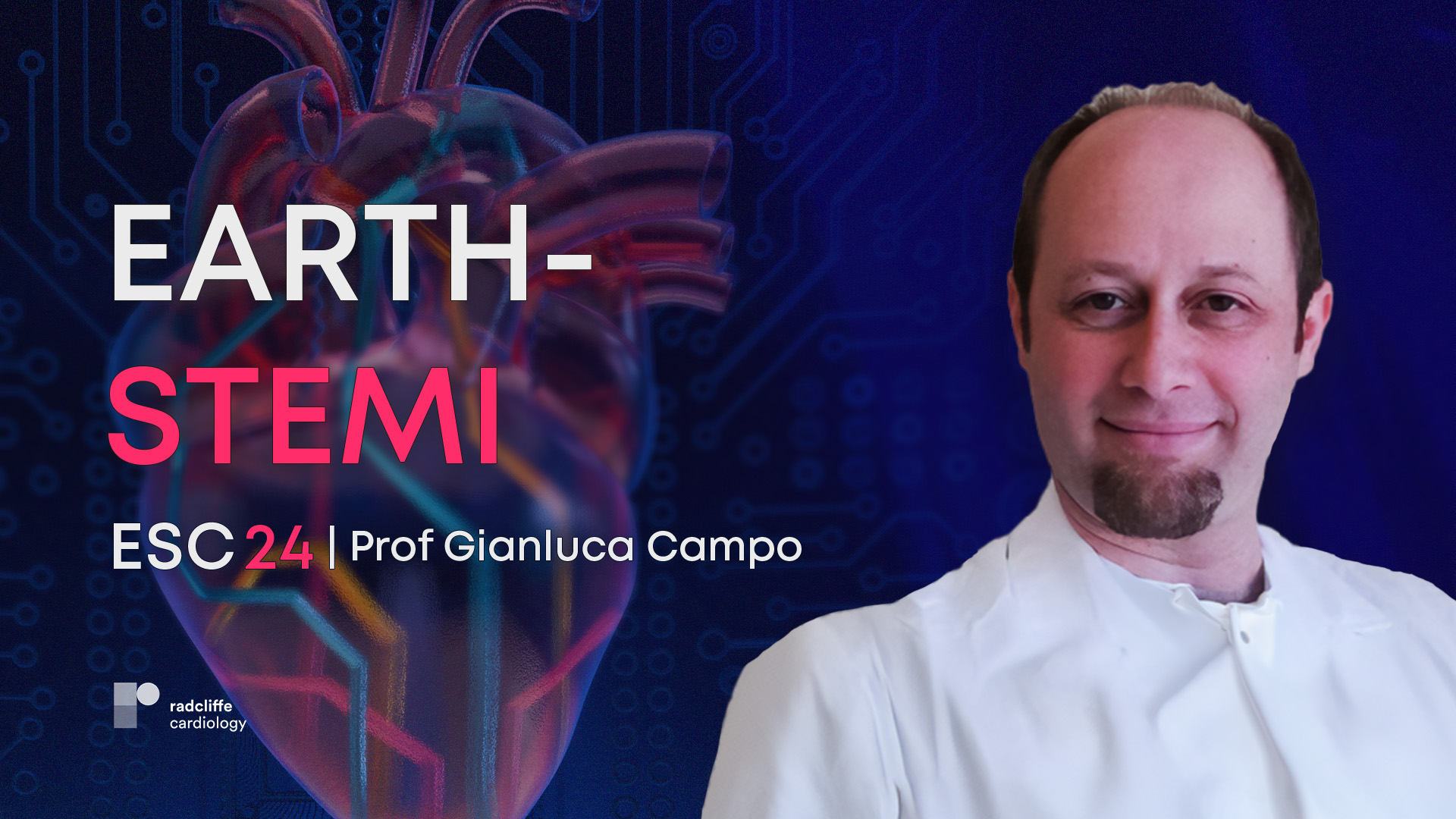 3m 51sPart 4 | Session 9 EARTH-STEMI: Complete Vs Culprit-Only Revascularization in Older Patients
3m 51sPart 4 | Session 9 EARTH-STEMI: Complete Vs Culprit-Only Revascularization in Older Patients -
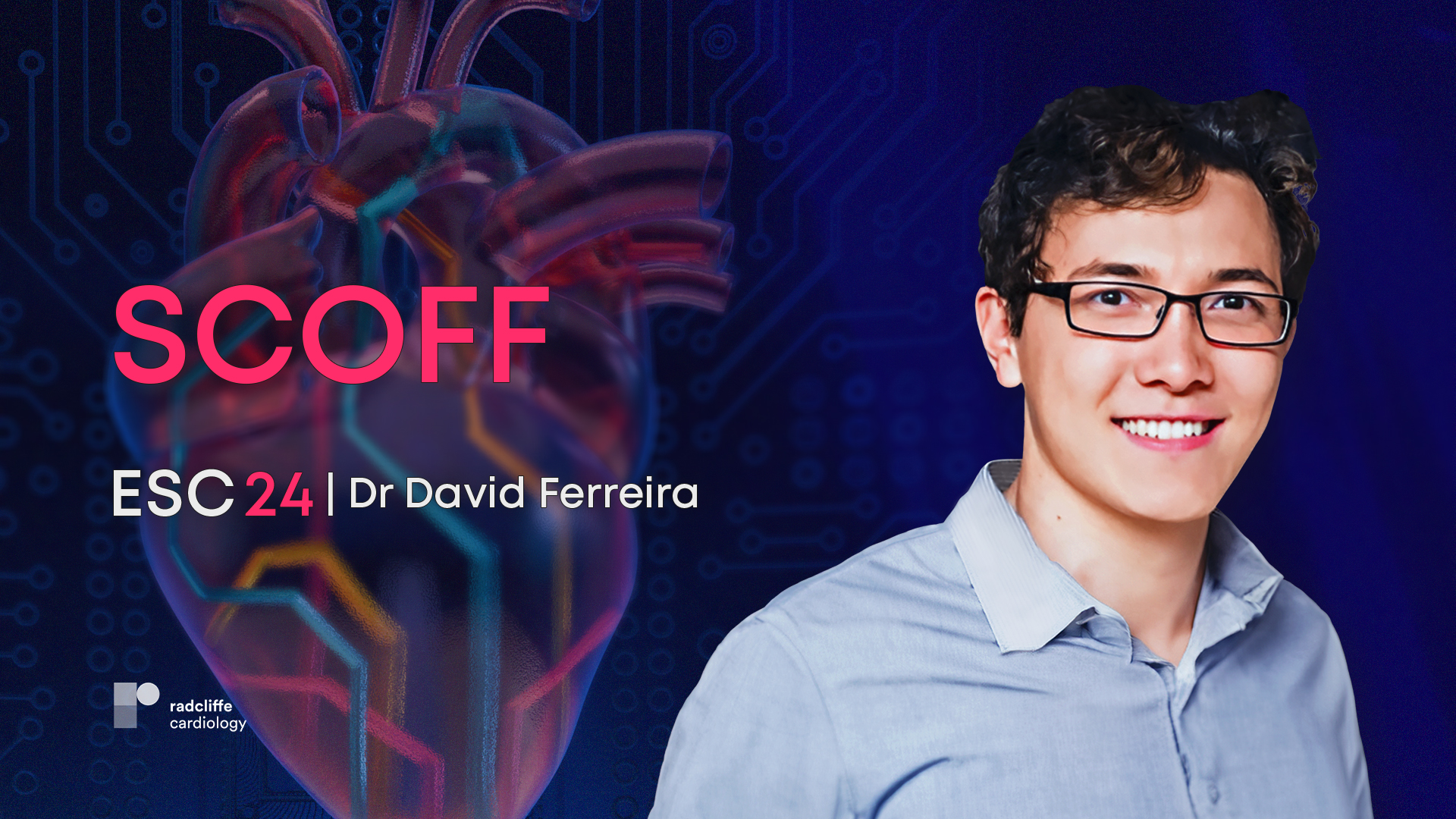 4m 17sPart 4 | Session 10 SCOFF: Fasting vs. Non-Fasting: Impact on Cardiac Catheterization Outcomes
4m 17sPart 4 | Session 10 SCOFF: Fasting vs. Non-Fasting: Impact on Cardiac Catheterization Outcomes -
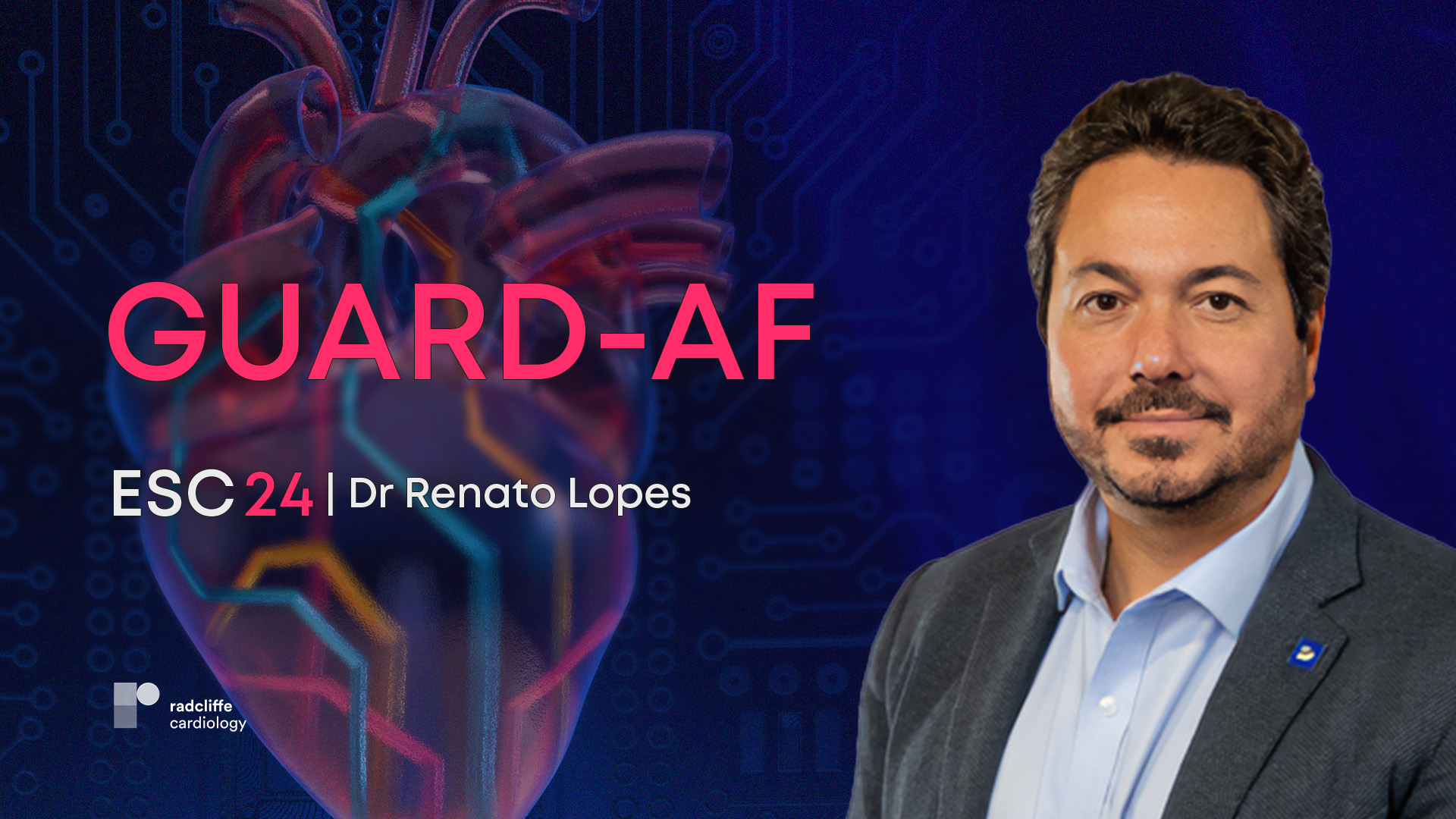 4m 17sPart 4 | Session 11 GUARD-AF: Atrial Fibrillation Screening to Reduce Stroke in Elderly Individuals
4m 17sPart 4 | Session 11 GUARD-AF: Atrial Fibrillation Screening to Reduce Stroke in Elderly Individuals -
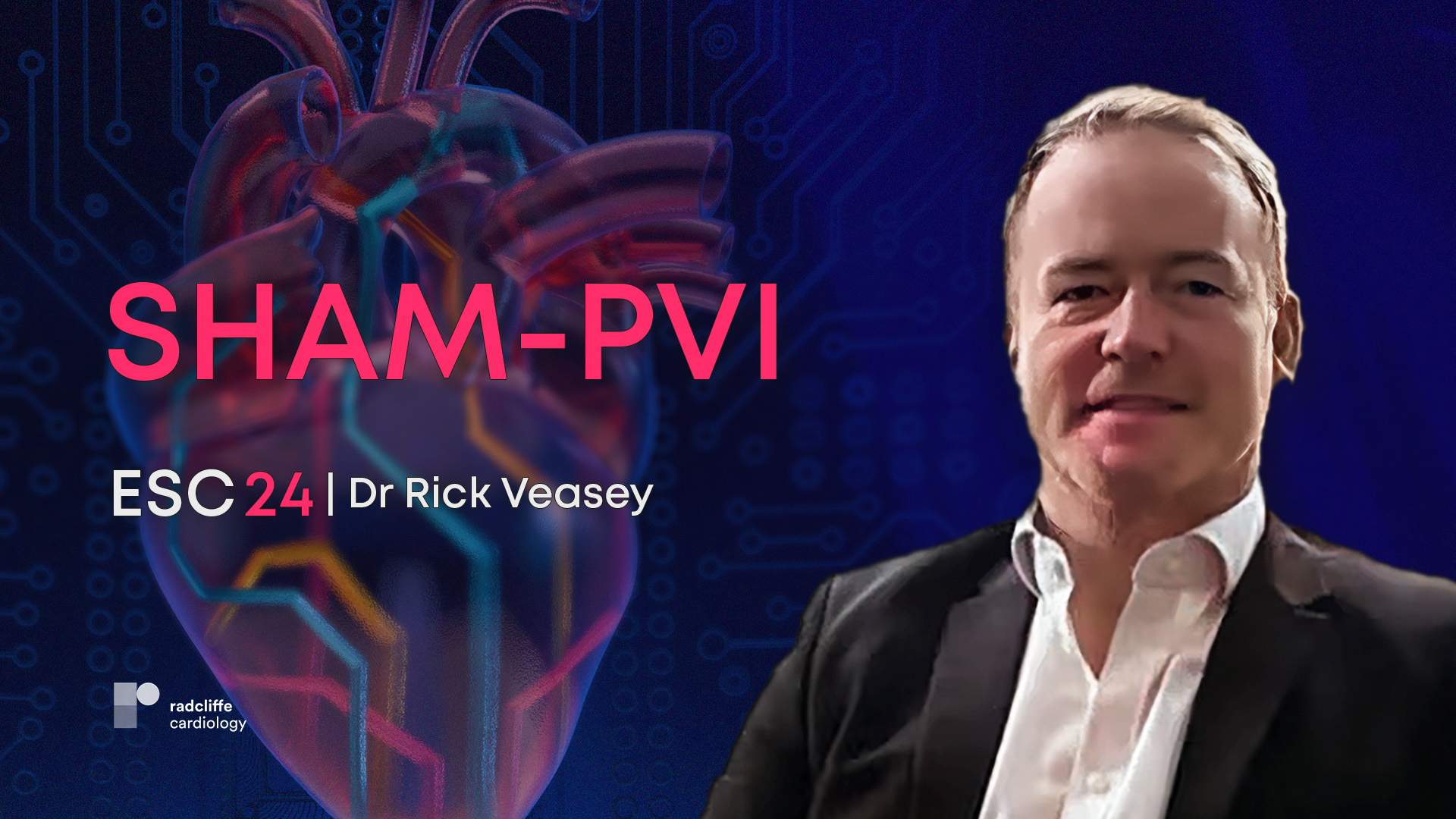 2m 31s
2m 31s -
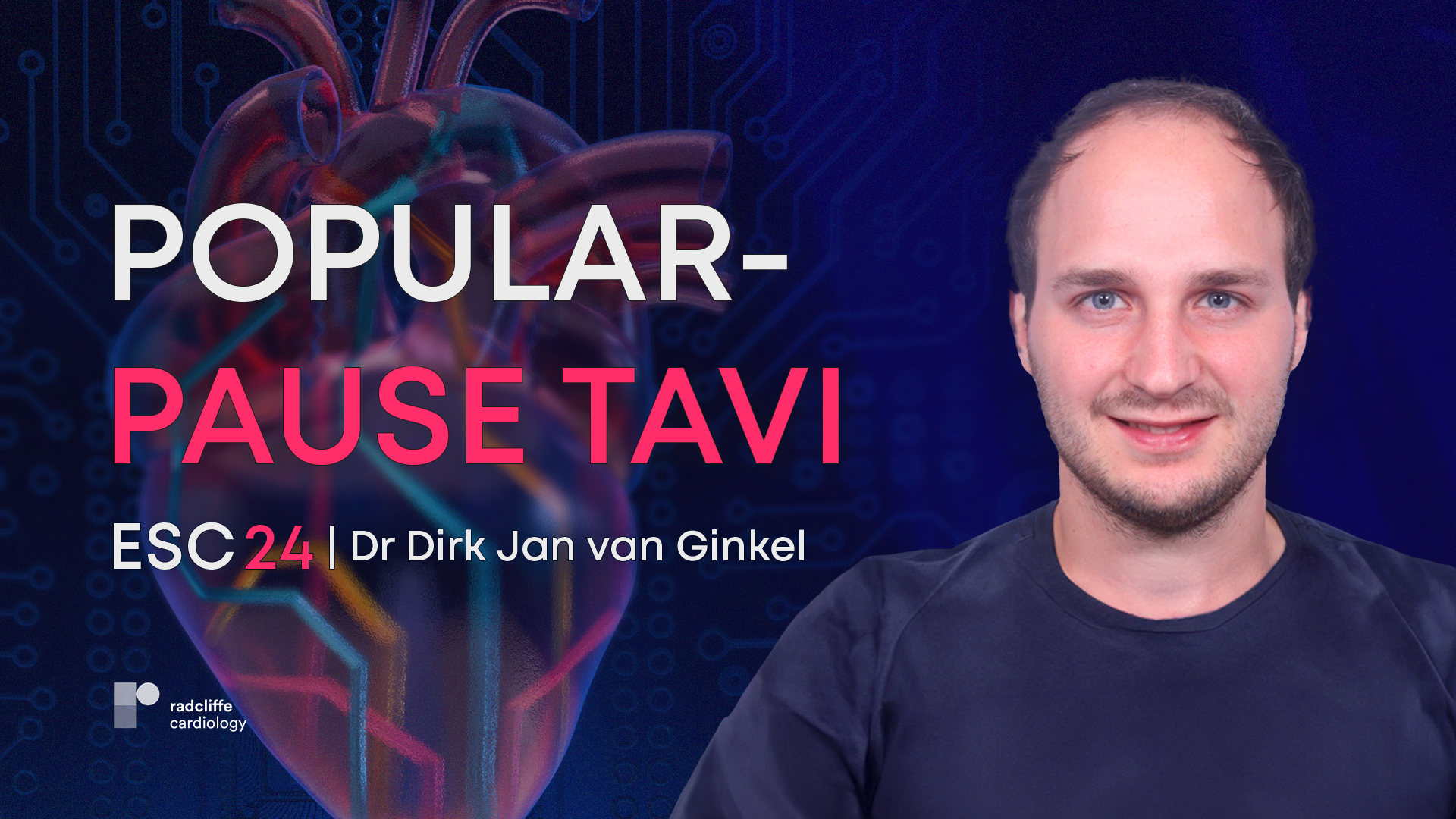 7m 9sPart 4 | Session 13 POPular PAUSE TAVI: Continuation or interruption of OAC During TAVI
7m 9sPart 4 | Session 13 POPular PAUSE TAVI: Continuation or interruption of OAC During TAVI
-
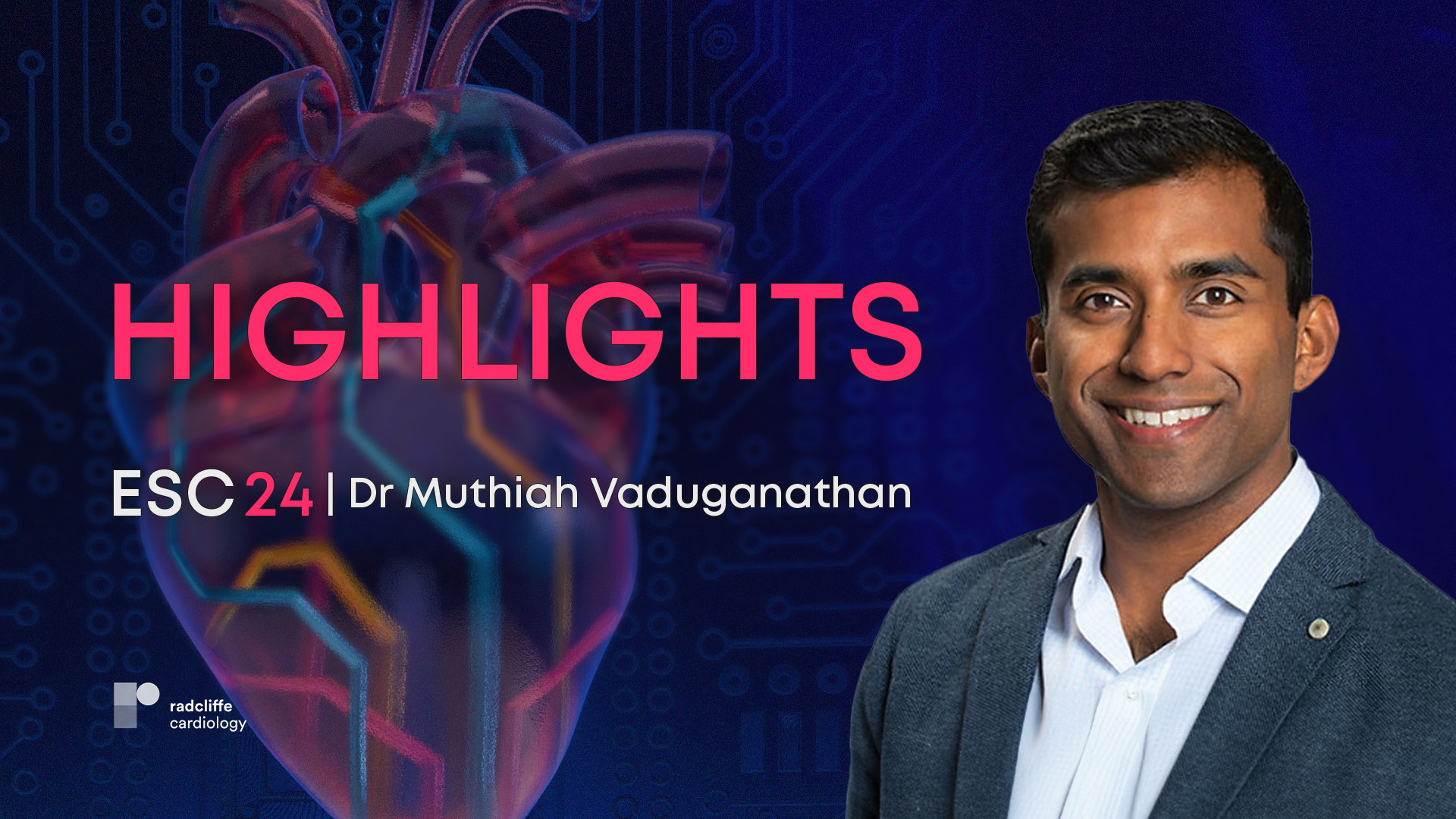 4m 54sPart 5 | Session 1 3 Trials That Will Change My Practice With Dr Muthiah Vaduganathan
4m 54sPart 5 | Session 1 3 Trials That Will Change My Practice With Dr Muthiah Vaduganathan -
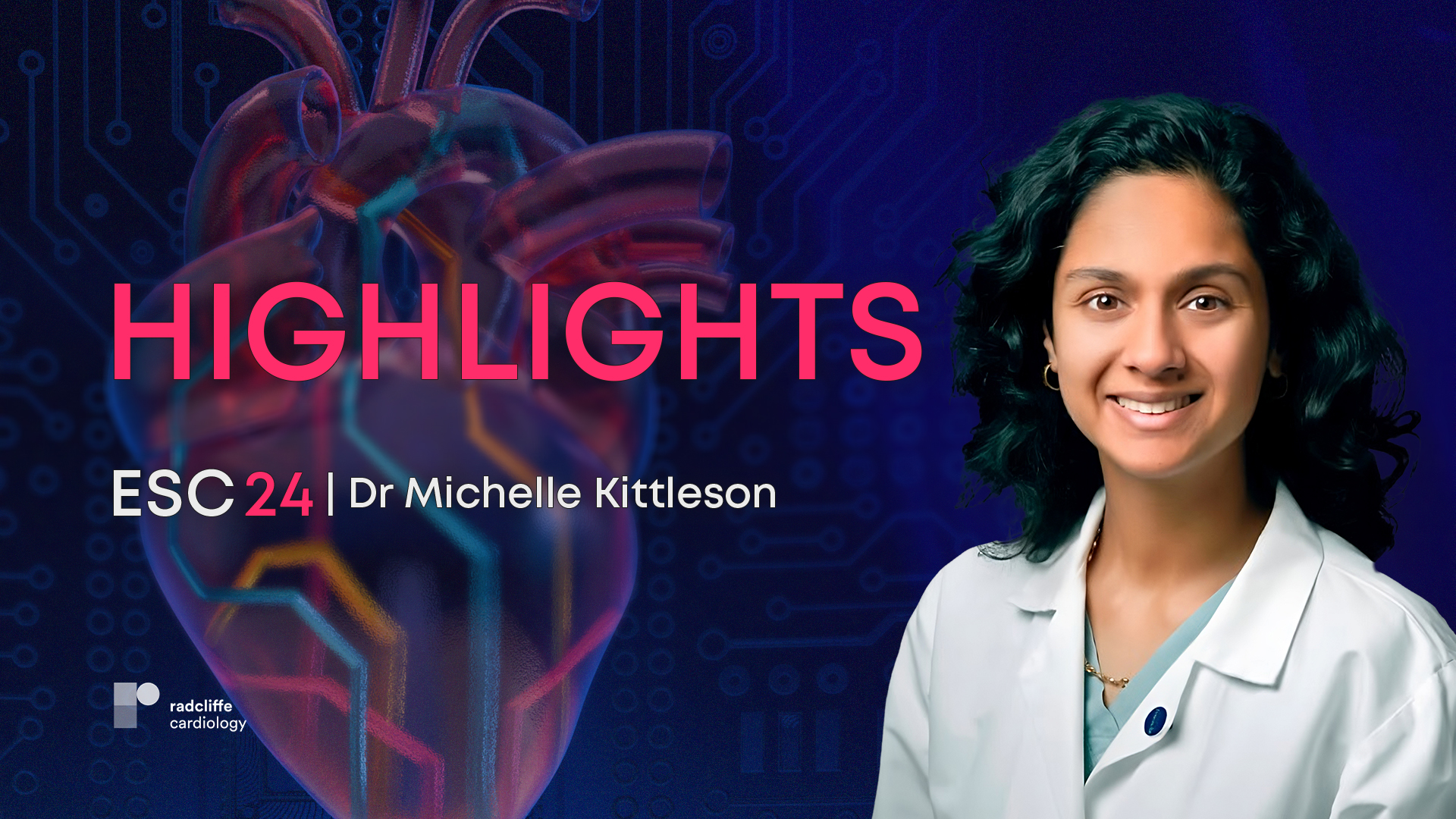 13m 47sPart 5 | Session 2 3 Trials That Will Change My Practice With Dr Michelle Kittleson
13m 47sPart 5 | Session 2 3 Trials That Will Change My Practice With Dr Michelle Kittleson
-
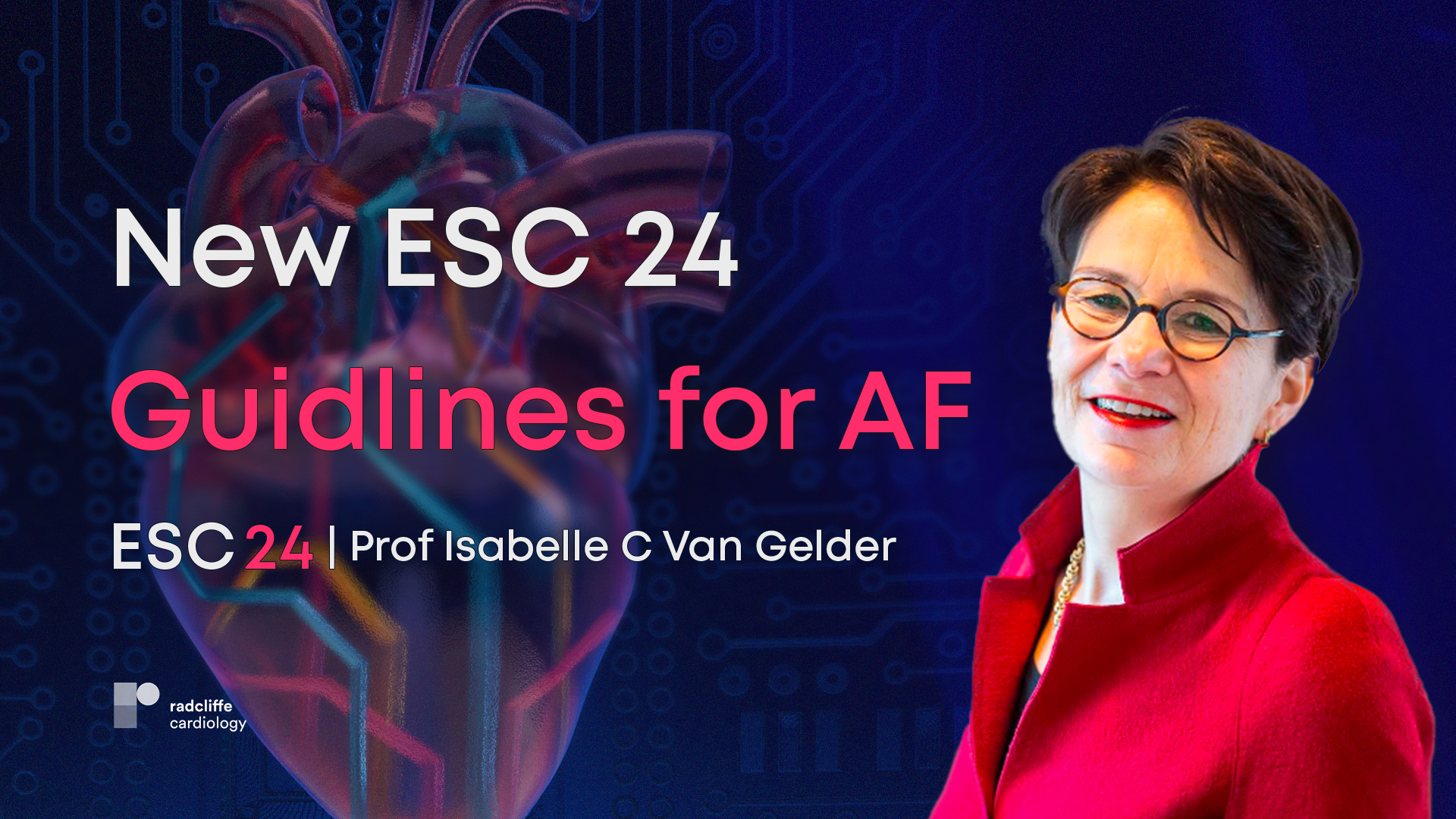 6m 55sPart 6 | Session 1 New Guidelines for the Management of Atrial Fibrillation
6m 55sPart 6 | Session 1 New Guidelines for the Management of Atrial Fibrillation -
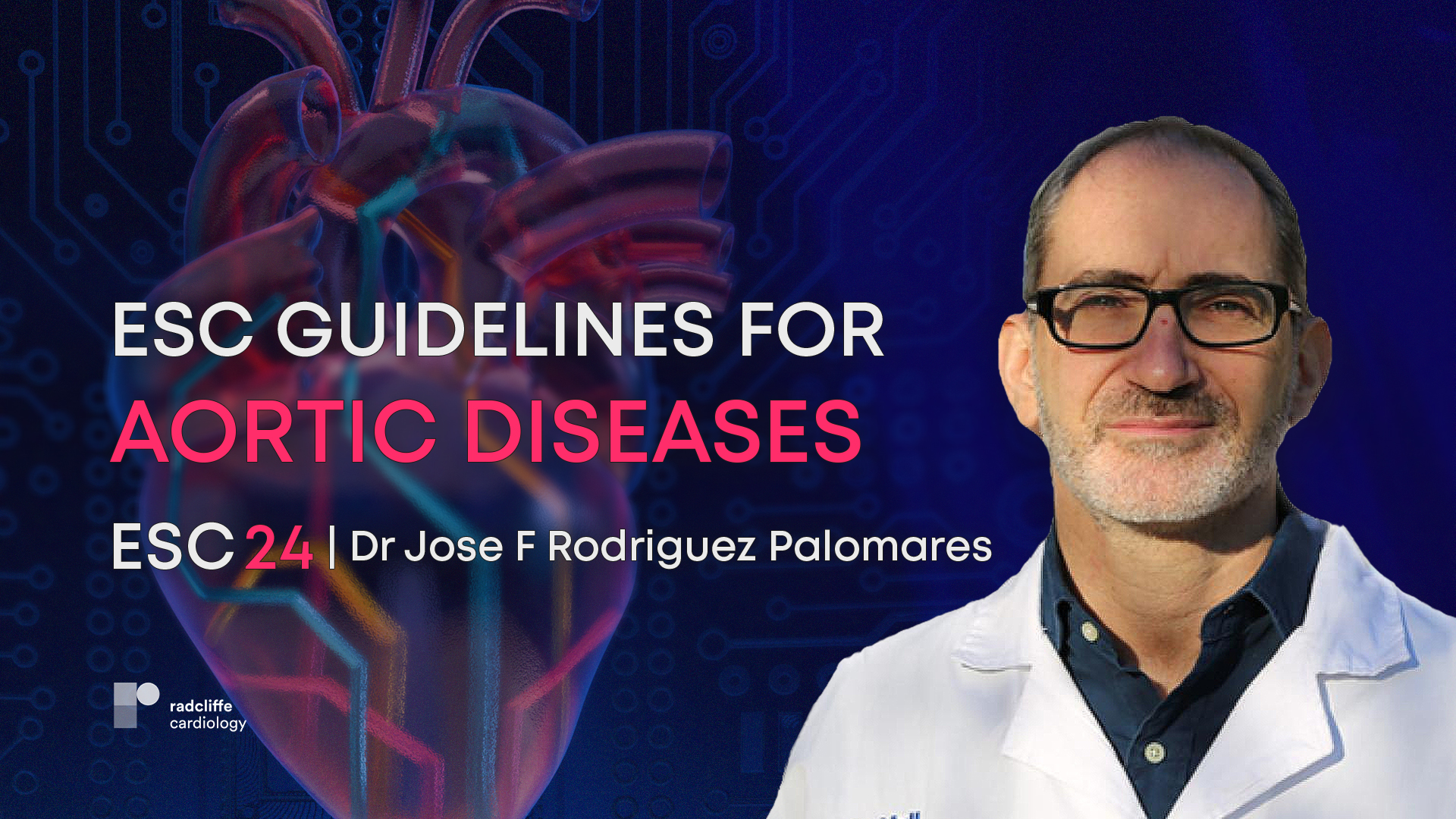 6m 13sPart 6 | Session 2 New Guidelines for the Management of Aortic Diseases
6m 13sPart 6 | Session 2 New Guidelines for the Management of Aortic Diseases
-
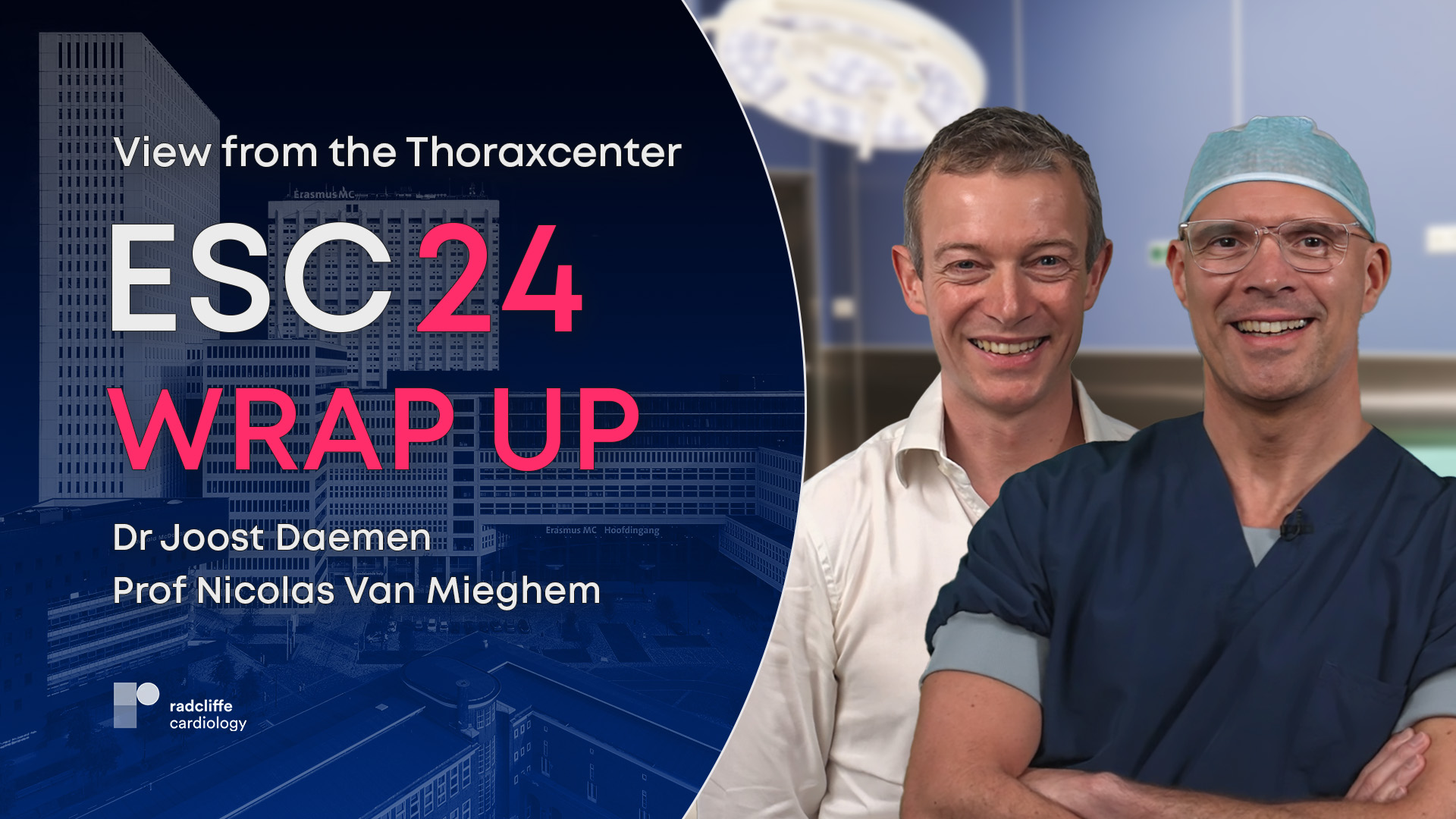 47m 31sPart 1 | Session 1 ESC Congress 2024 Hot Line Wrap Up Nicolas M Van Mieghem, Joost Daemen
47m 31sPart 1 | Session 1 ESC Congress 2024 Hot Line Wrap Up Nicolas M Van Mieghem, Joost Daemen
-
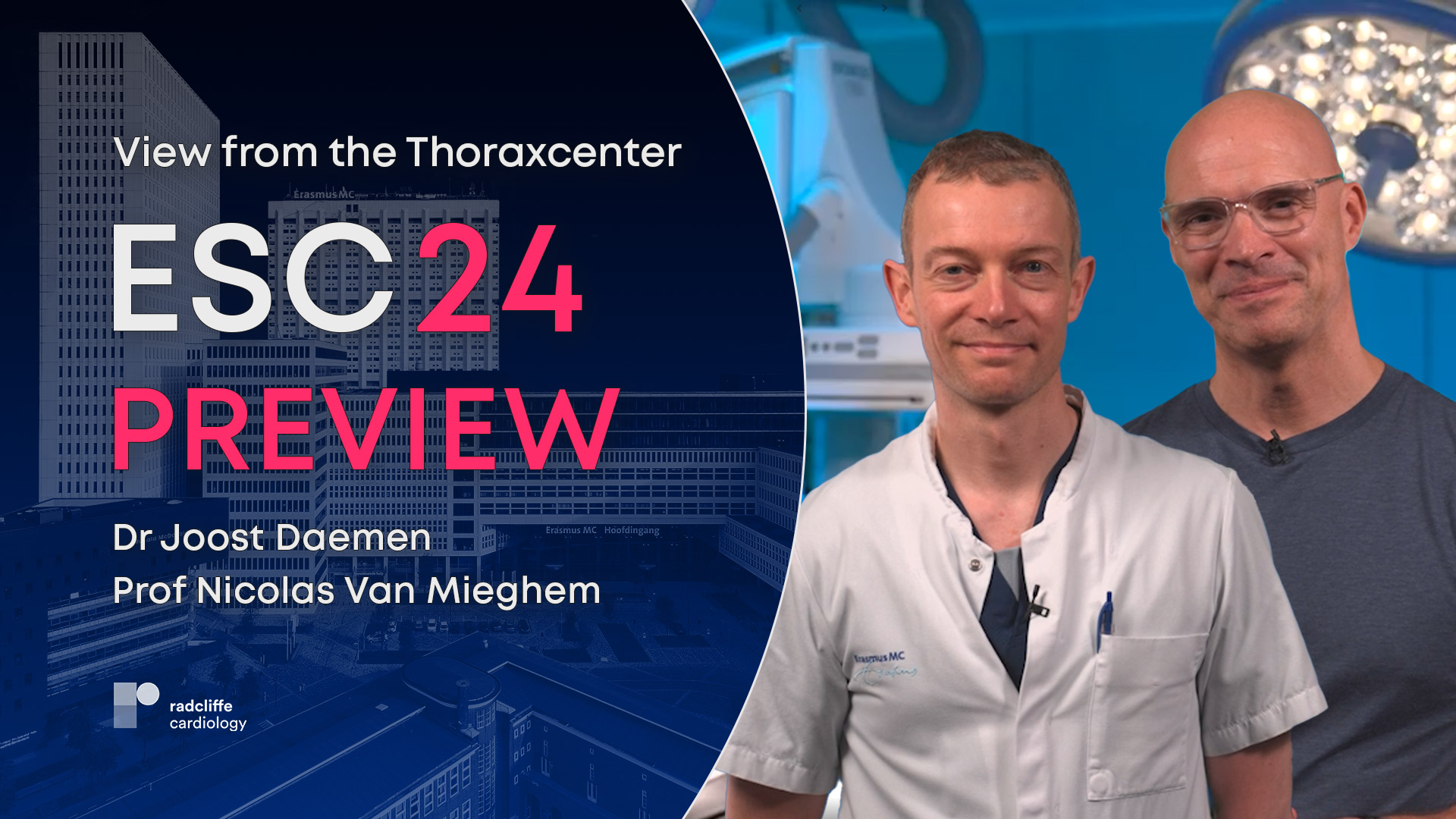 27m 27sPart 1 | Session 2 ESC Congress 2024 Hot Line Preview Nicolas M Van Mieghem, Joost Daemen
27m 27sPart 1 | Session 2 ESC Congress 2024 Hot Line Preview Nicolas M Van Mieghem, Joost Daemen
-
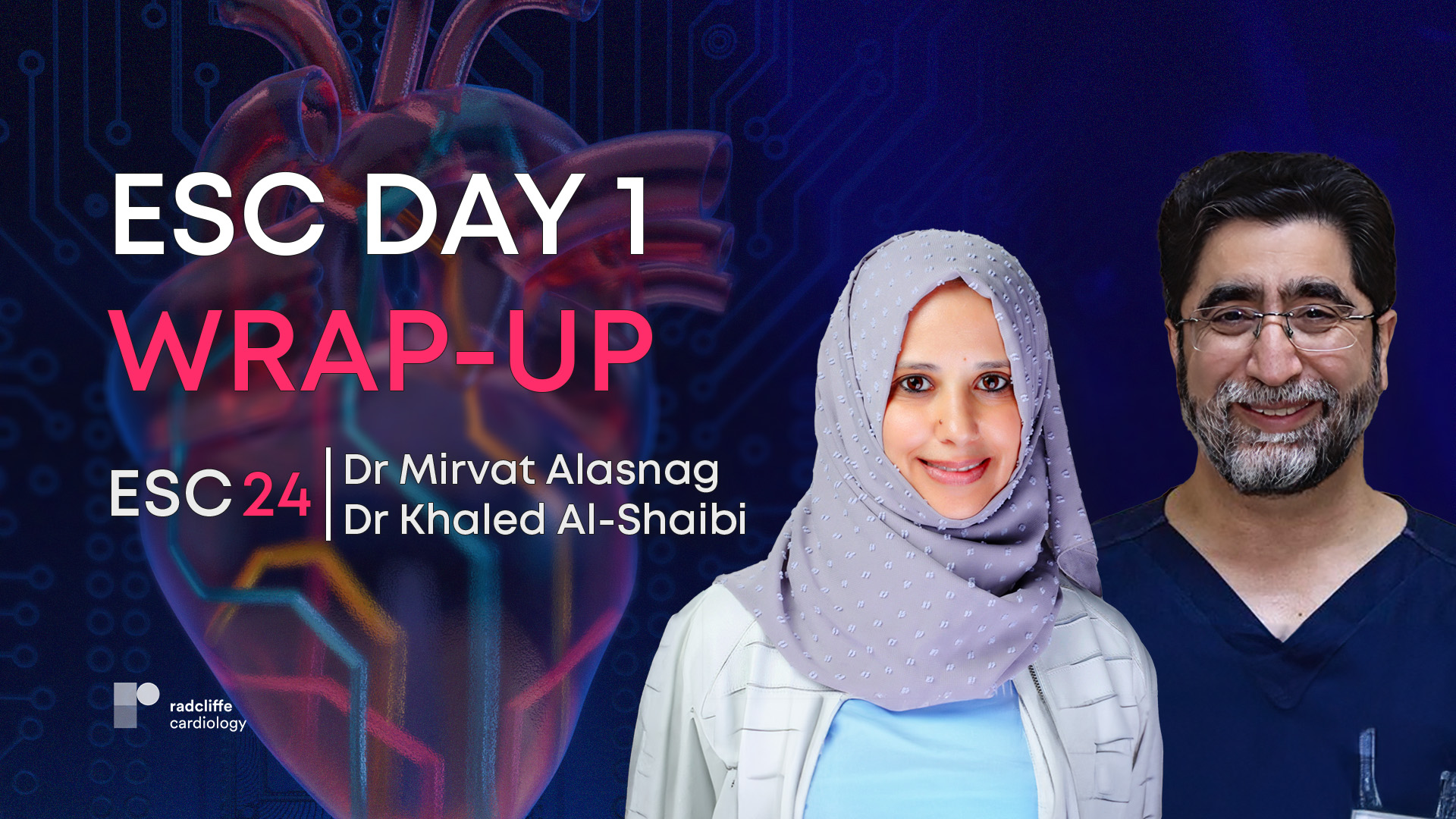 17m 25sPart 2 | Session 1 ESC Day 1 Wrap Up: New Guidelines, HELIOS-B, ABYSS & STOP-or-NOT Mirvat Alasnag, Khaled Al-Shaibi
17m 25sPart 2 | Session 1 ESC Day 1 Wrap Up: New Guidelines, HELIOS-B, ABYSS & STOP-or-NOT Mirvat Alasnag, Khaled Al-Shaibi
-
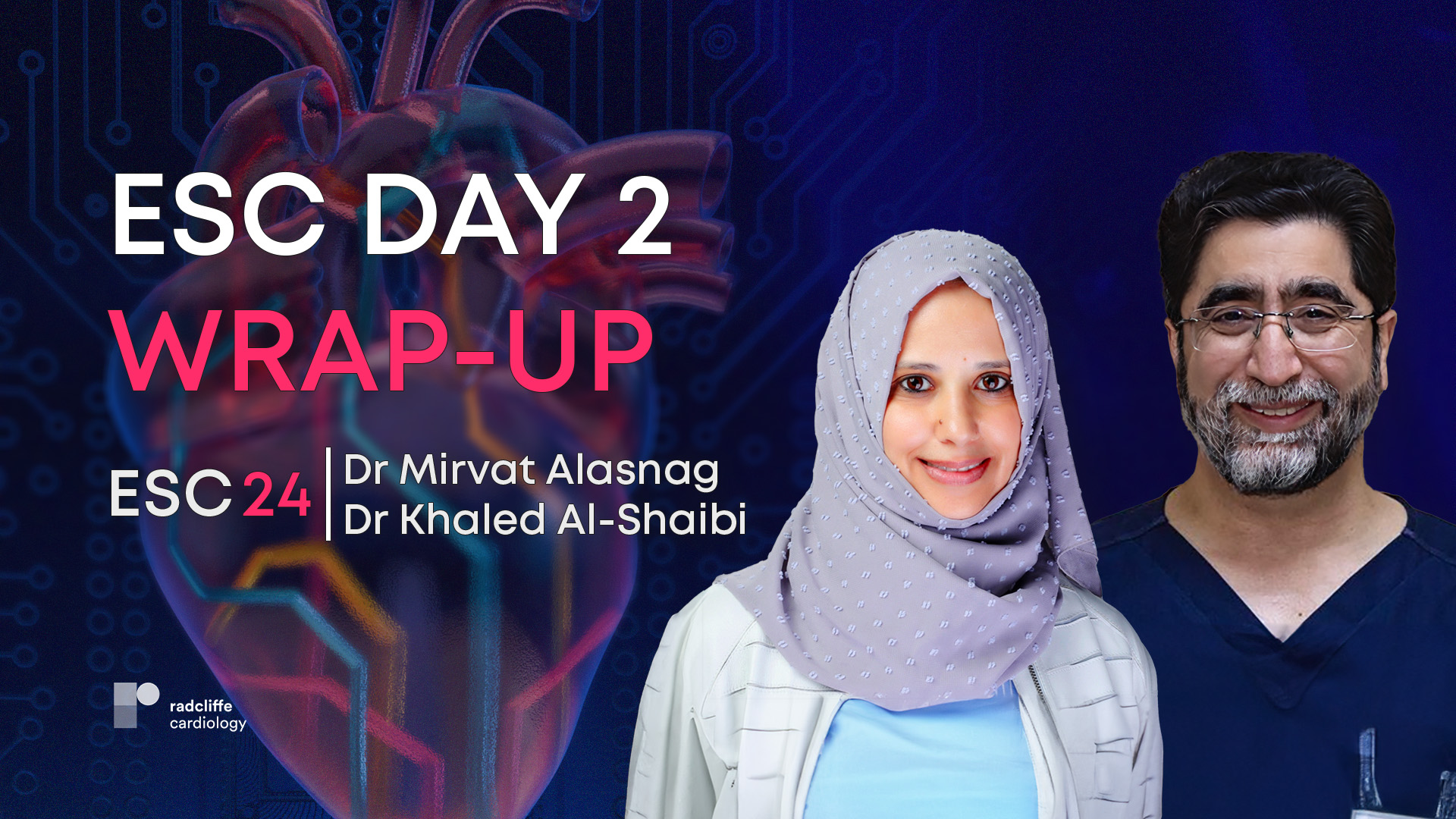 23m 2sPart 2 | Session 2 ESC Day 2 Wrap-Up: NOTION-3, RESHAPE-HF2, TRI.Fr & More Mirvat Alasnag, Khaled Al-Shaibi
23m 2sPart 2 | Session 2 ESC Day 2 Wrap-Up: NOTION-3, RESHAPE-HF2, TRI.Fr & More Mirvat Alasnag, Khaled Al-Shaibi
-
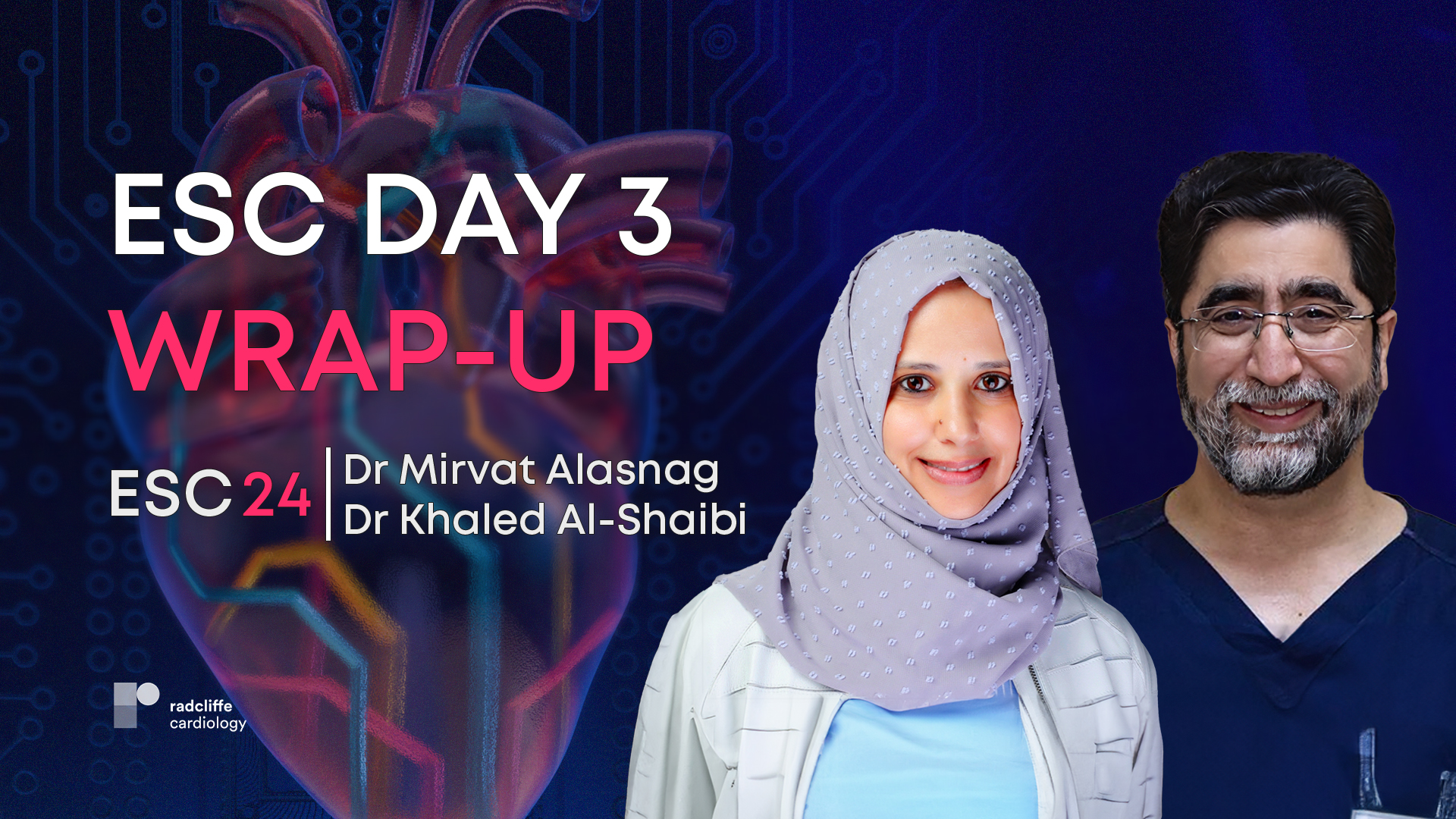 12m 28sPart 2 | Session 3 Day 3 Wrap-Up with Dr Alasnag and Dr Al-Shaibi Mirvat Alasnag, Khaled Al-Shaibi
12m 28sPart 2 | Session 3 Day 3 Wrap-Up with Dr Alasnag and Dr Al-Shaibi Mirvat Alasnag, Khaled Al-Shaibi
-
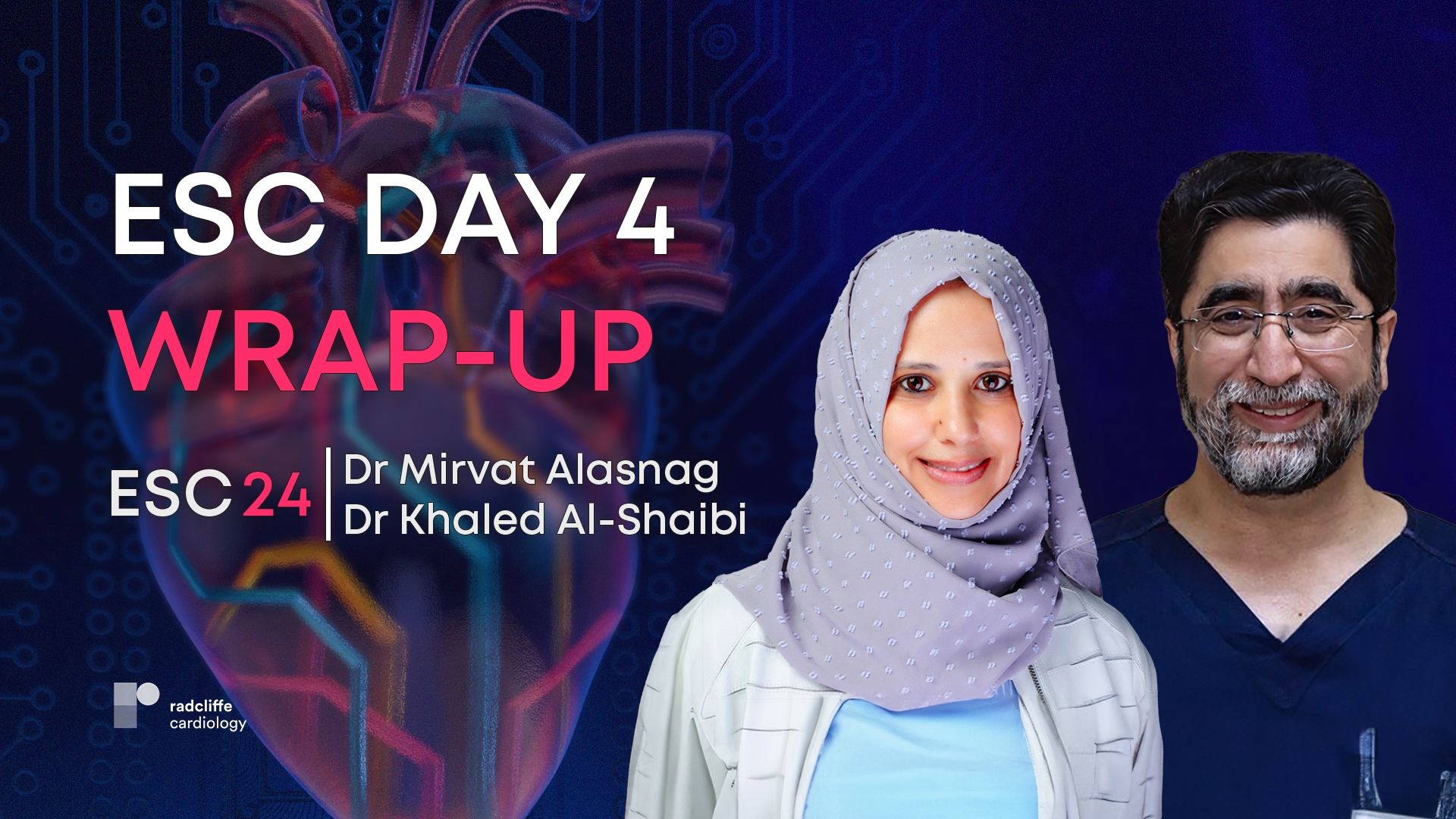 15m 45sPart 2 | Session 4 Day 4 Wrap-Up: OCCUPI, REC-CAGEFREE I, AEGIS-II & More Mirvat Alasnag, Khaled Al-Shaibi
15m 45sPart 2 | Session 4 Day 4 Wrap-Up: OCCUPI, REC-CAGEFREE I, AEGIS-II & More Mirvat Alasnag, Khaled Al-Shaibi
-
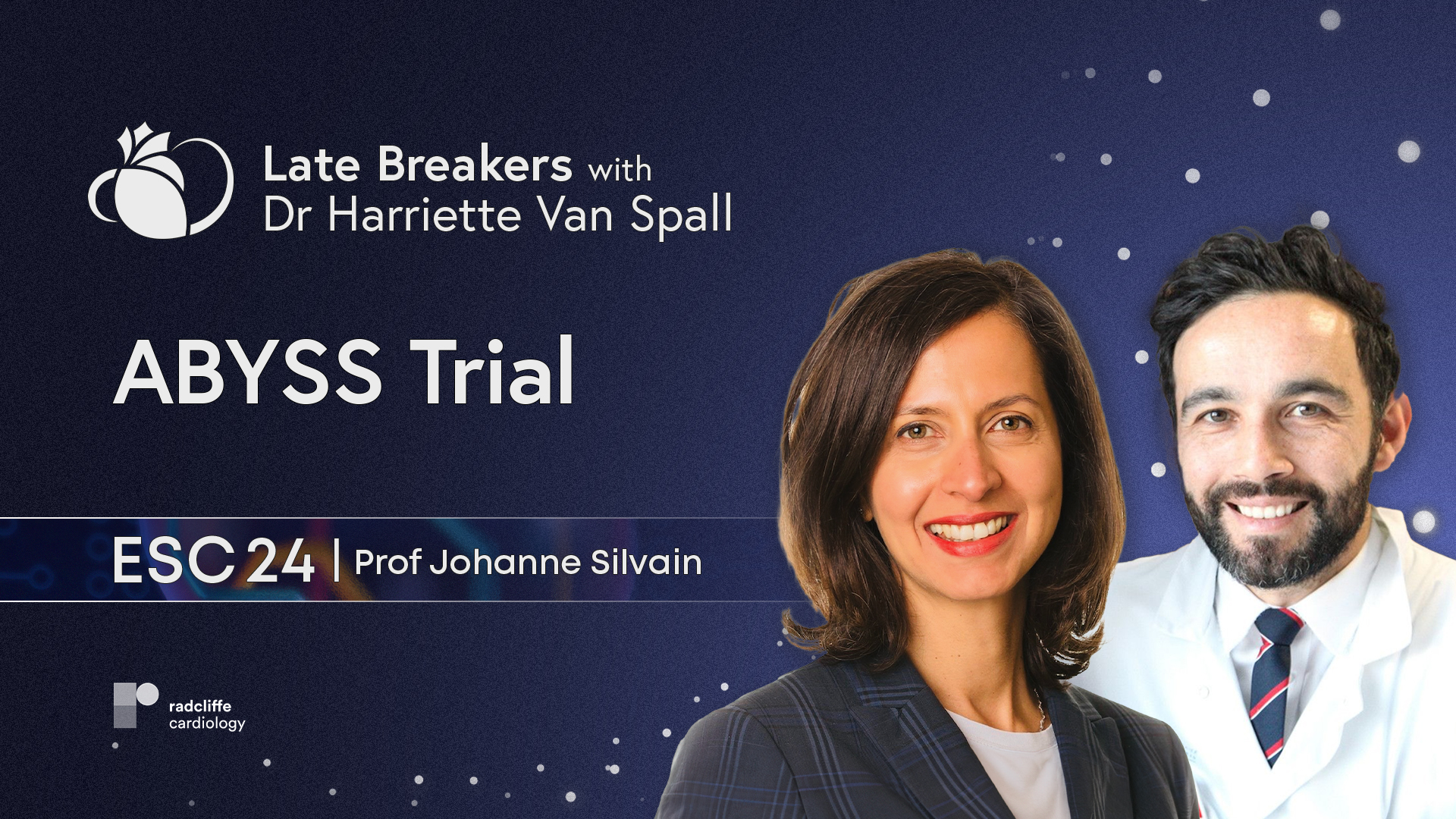 20m 58sPart 3 | Session 1 AβYSS: Beta Blocker Interruption After Uncomplicated MI Harriette Van Spall, Prof. Johanne Silvain
20m 58sPart 3 | Session 1 AβYSS: Beta Blocker Interruption After Uncomplicated MI Harriette Van Spall, Prof. Johanne Silvain
-
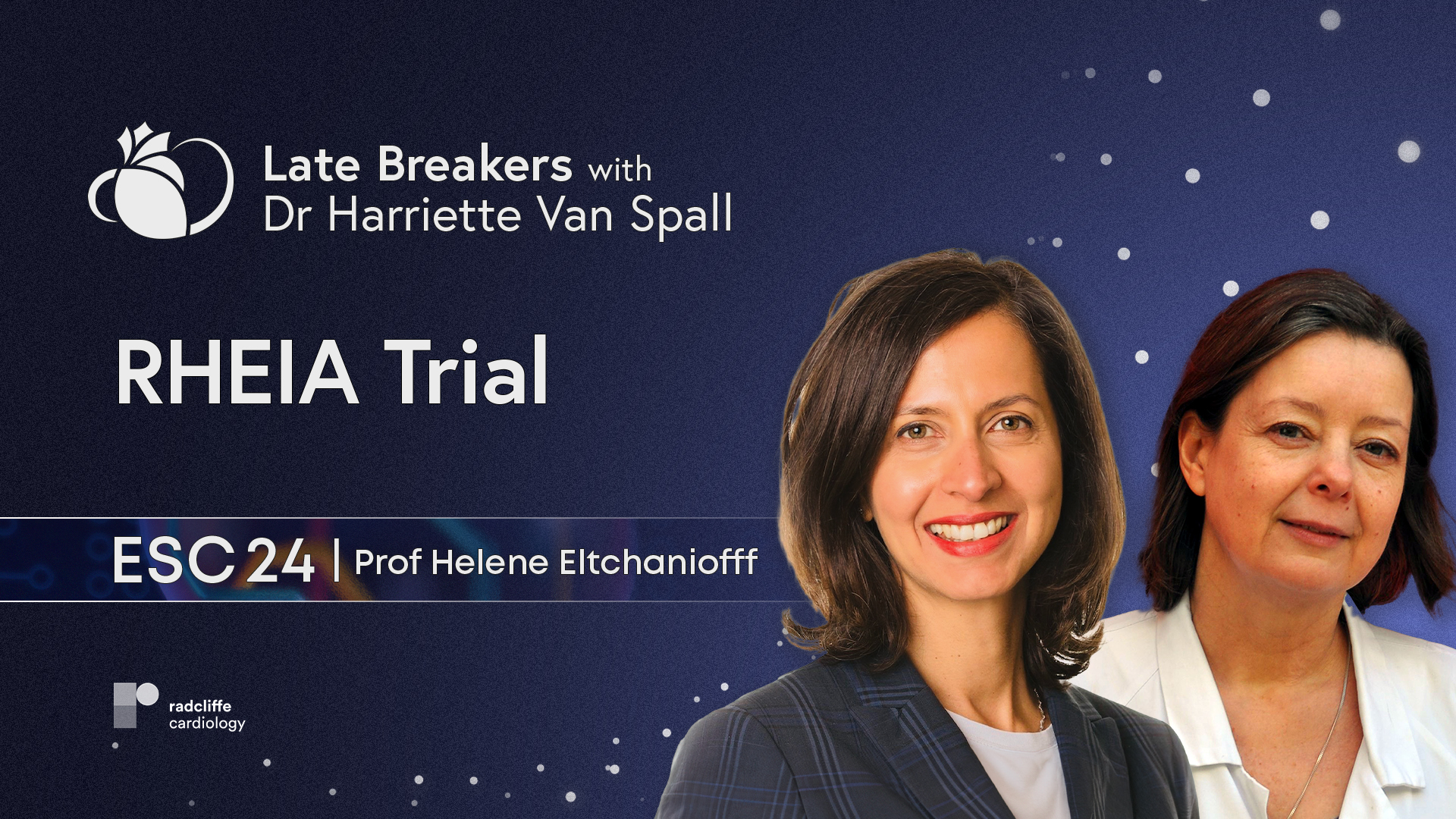 20m 14sPart 3 | Session 2 RHEIA: TAVR vs SAVR in Women with Severe AS Helene Eltchaninoff, Harriette Van Spall
20m 14sPart 3 | Session 2 RHEIA: TAVR vs SAVR in Women with Severe AS Helene Eltchaninoff, Harriette Van Spall
-
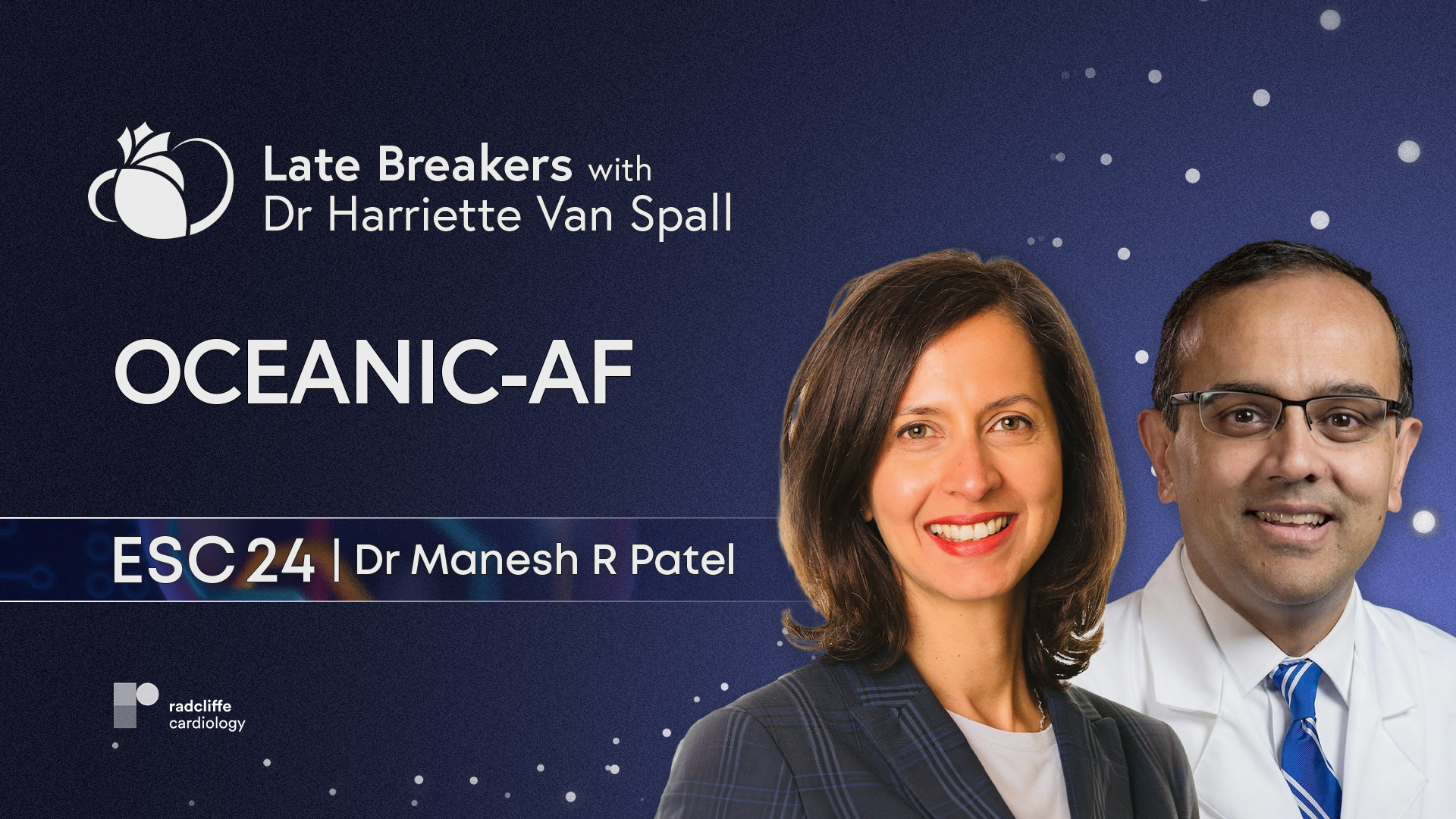 8m 47sPart 3 | Session 3 OCEANIC-AF: Asundexian Vs Apixaban in Atrial Fibrillation Manesh R Patel, Harriette Van Spall
8m 47sPart 3 | Session 3 OCEANIC-AF: Asundexian Vs Apixaban in Atrial Fibrillation Manesh R Patel, Harriette Van Spall
-
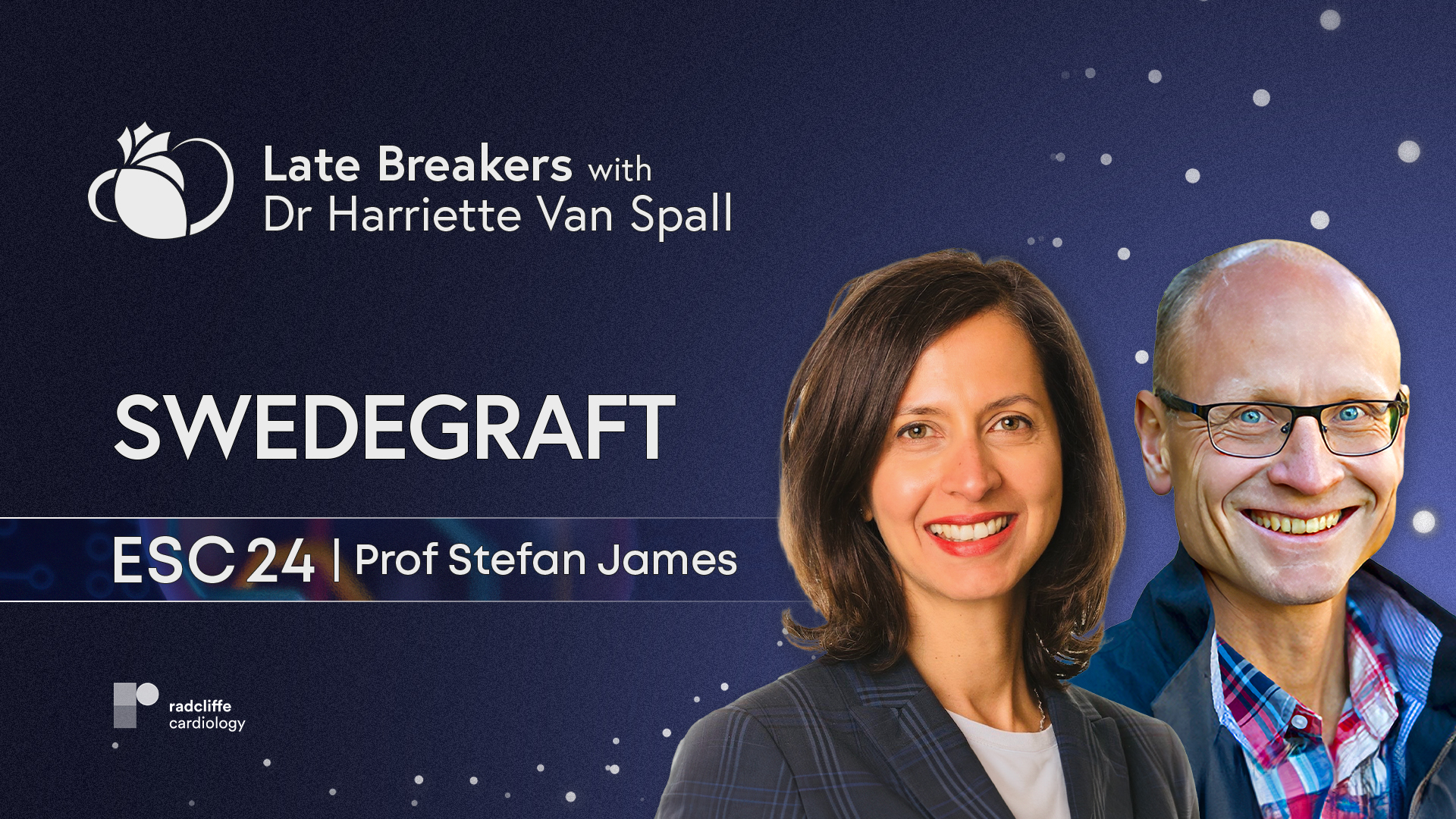 9m 29sPart 3 | Session 4 SWEDEGRAFT: No-touch Vein Graft in CABG Harriette Van Spall, Stefan James
9m 29sPart 3 | Session 4 SWEDEGRAFT: No-touch Vein Graft in CABG Harriette Van Spall, Stefan James
-
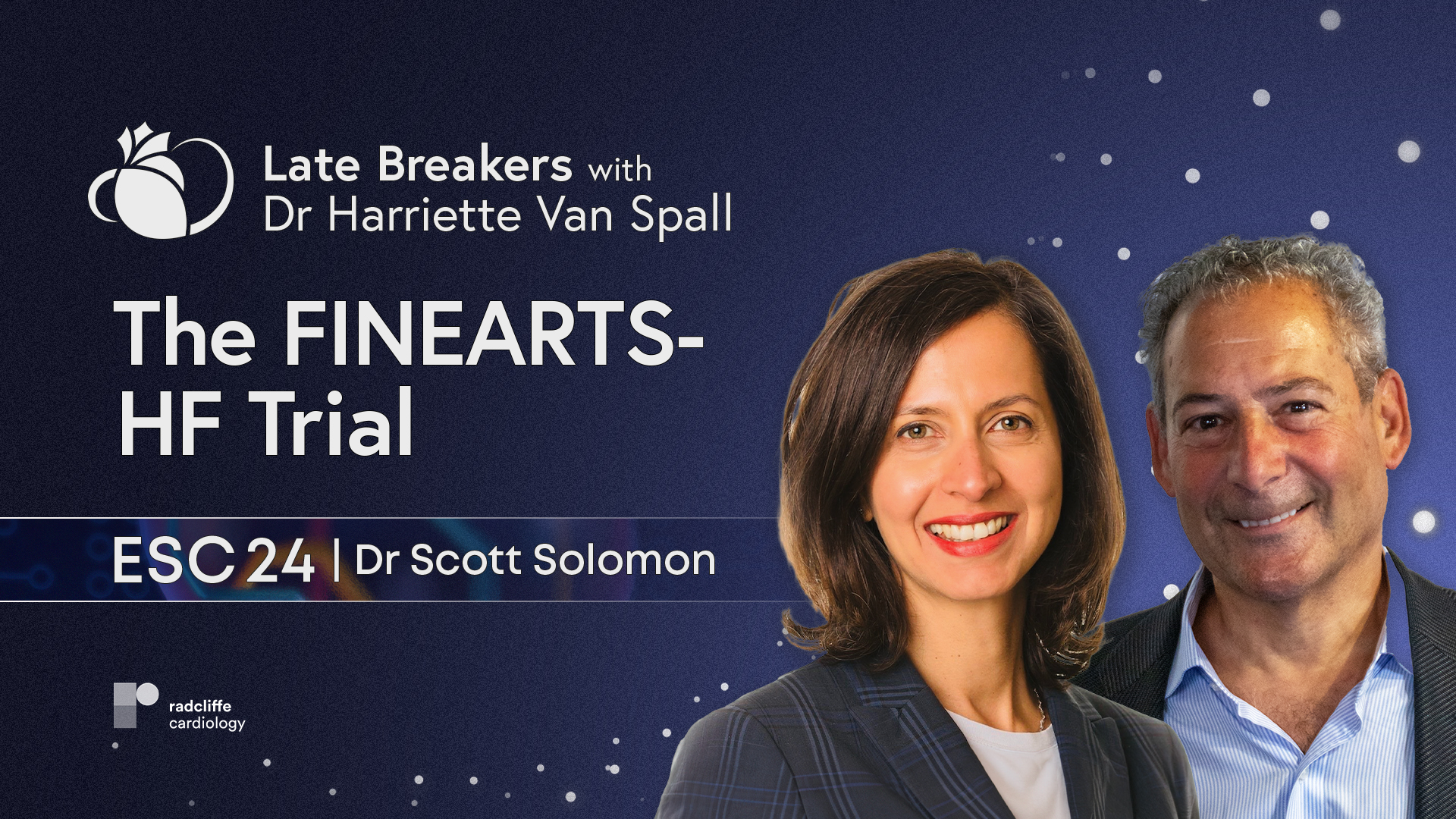 17m 28sPart 3 | Session 5 FINEARTS-HF: Finerenone HFmEF & HFpEF Harriette Van Spall, Scott Solomon
17m 28sPart 3 | Session 5 FINEARTS-HF: Finerenone HFmEF & HFpEF Harriette Van Spall, Scott Solomon
-
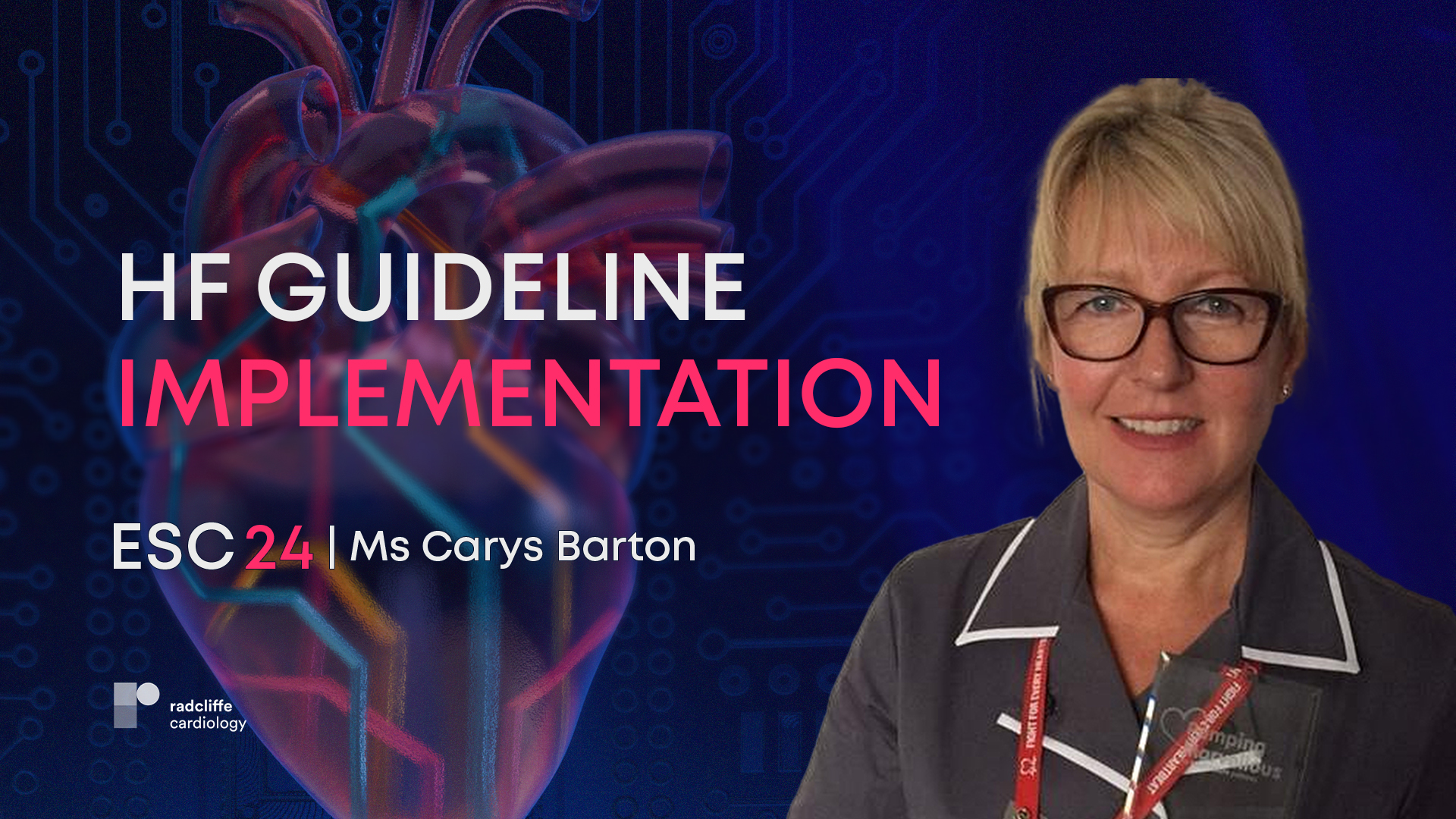 6m 8sPart 4 | Session 1 Bridging the Gap in Heart Failure Guideline Implementation from a Specialist Nurse Perspective Carys Barton
6m 8sPart 4 | Session 1 Bridging the Gap in Heart Failure Guideline Implementation from a Specialist Nurse Perspective Carys Barton
-
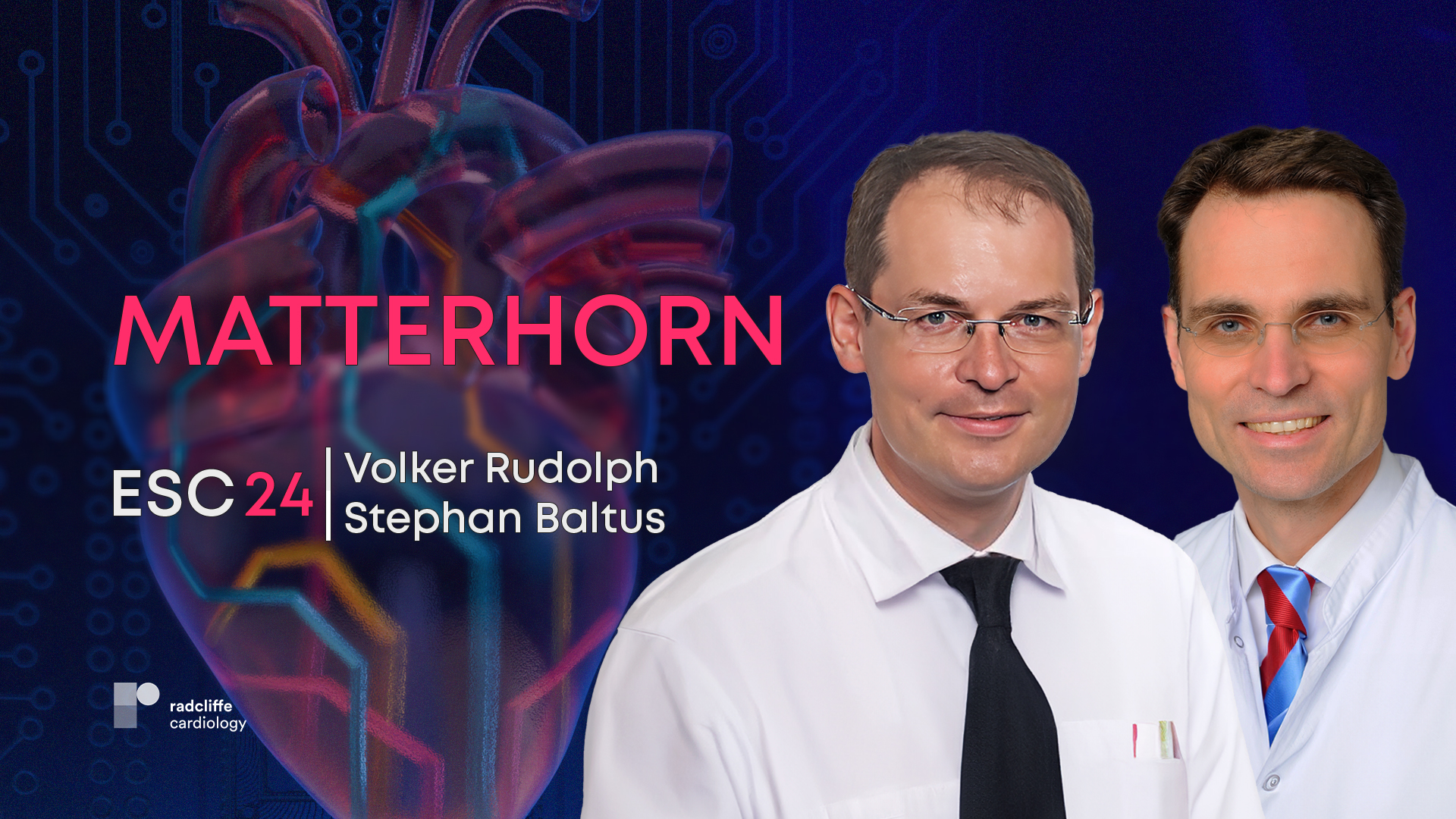 5m 29sPart 4 | Session 2 MATTERHORN: M-TEER vs Surgery in Heart Failure Volker Rudolph, Stephan Baldus
5m 29sPart 4 | Session 2 MATTERHORN: M-TEER vs Surgery in Heart Failure Volker Rudolph, Stephan Baldus
-
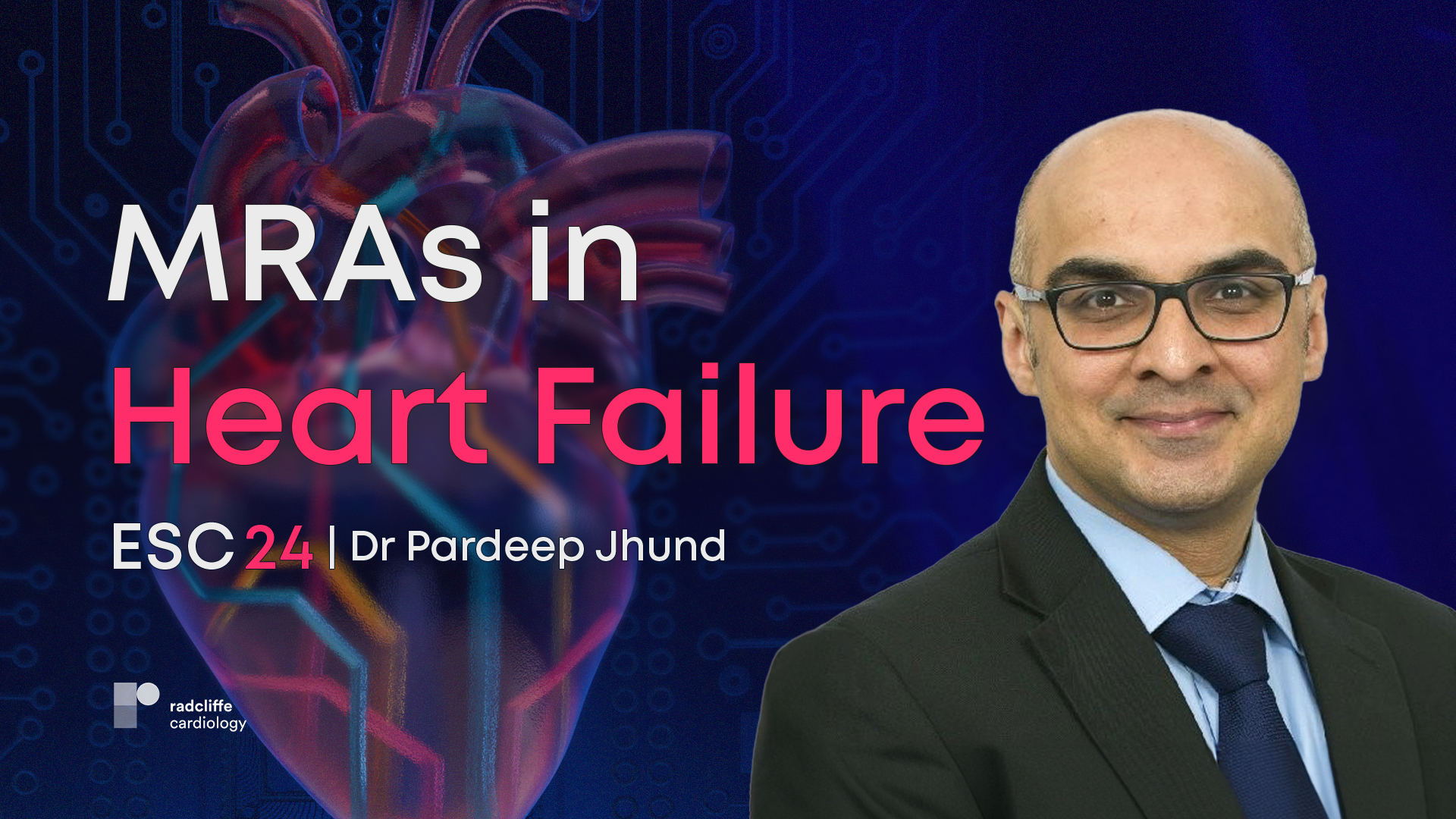 5m 46sPart 4 | Session 3 MRAs in Heart Failure Pardeep Jhund
5m 46sPart 4 | Session 3 MRAs in Heart Failure Pardeep Jhund
-
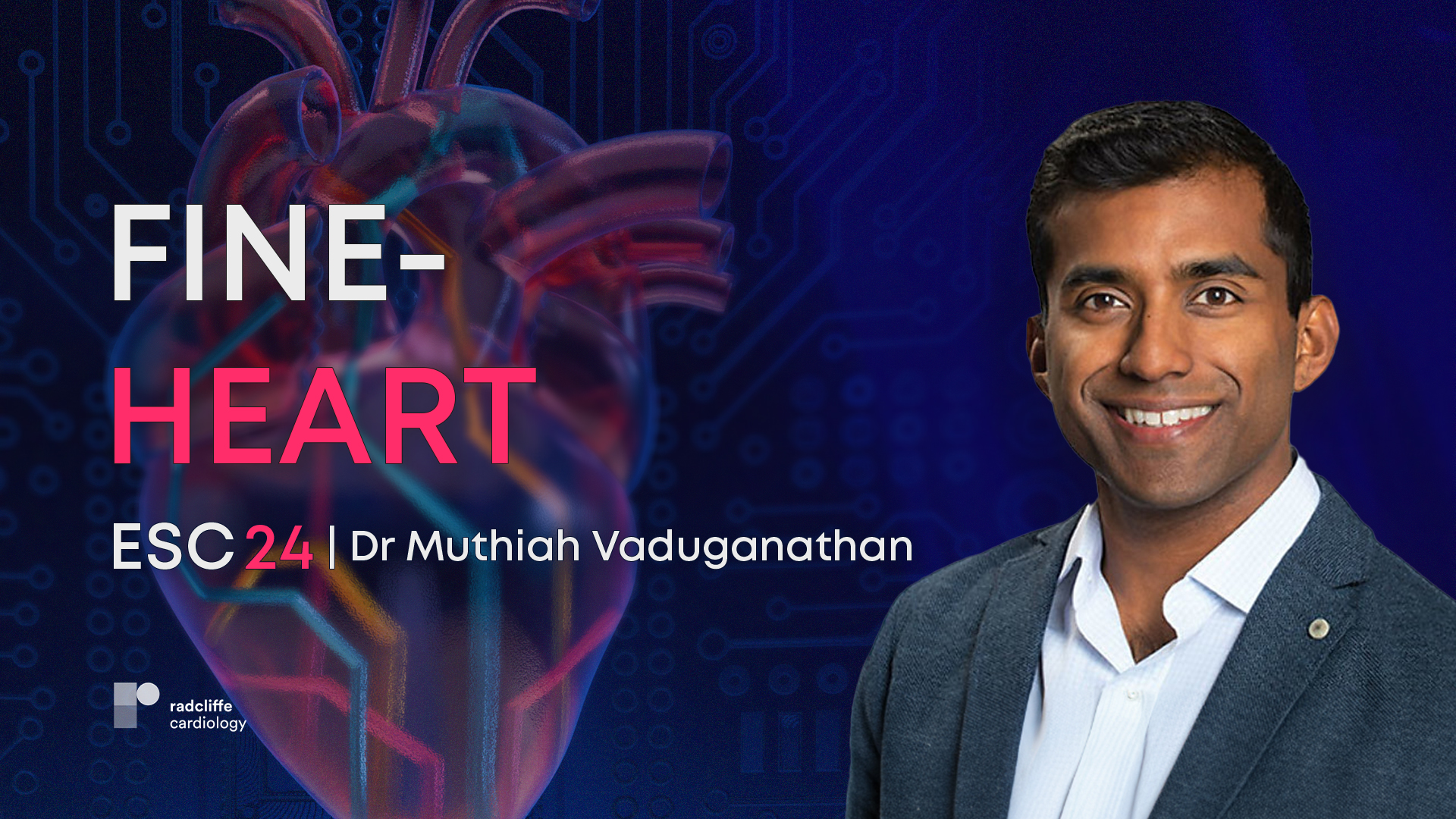 4m 24sPart 4 | Session 4 FINE-HEART: Finerenone in HF & CKD Muthiah Vaduganathan
4m 24sPart 4 | Session 4 FINE-HEART: Finerenone in HF & CKD Muthiah Vaduganathan
-
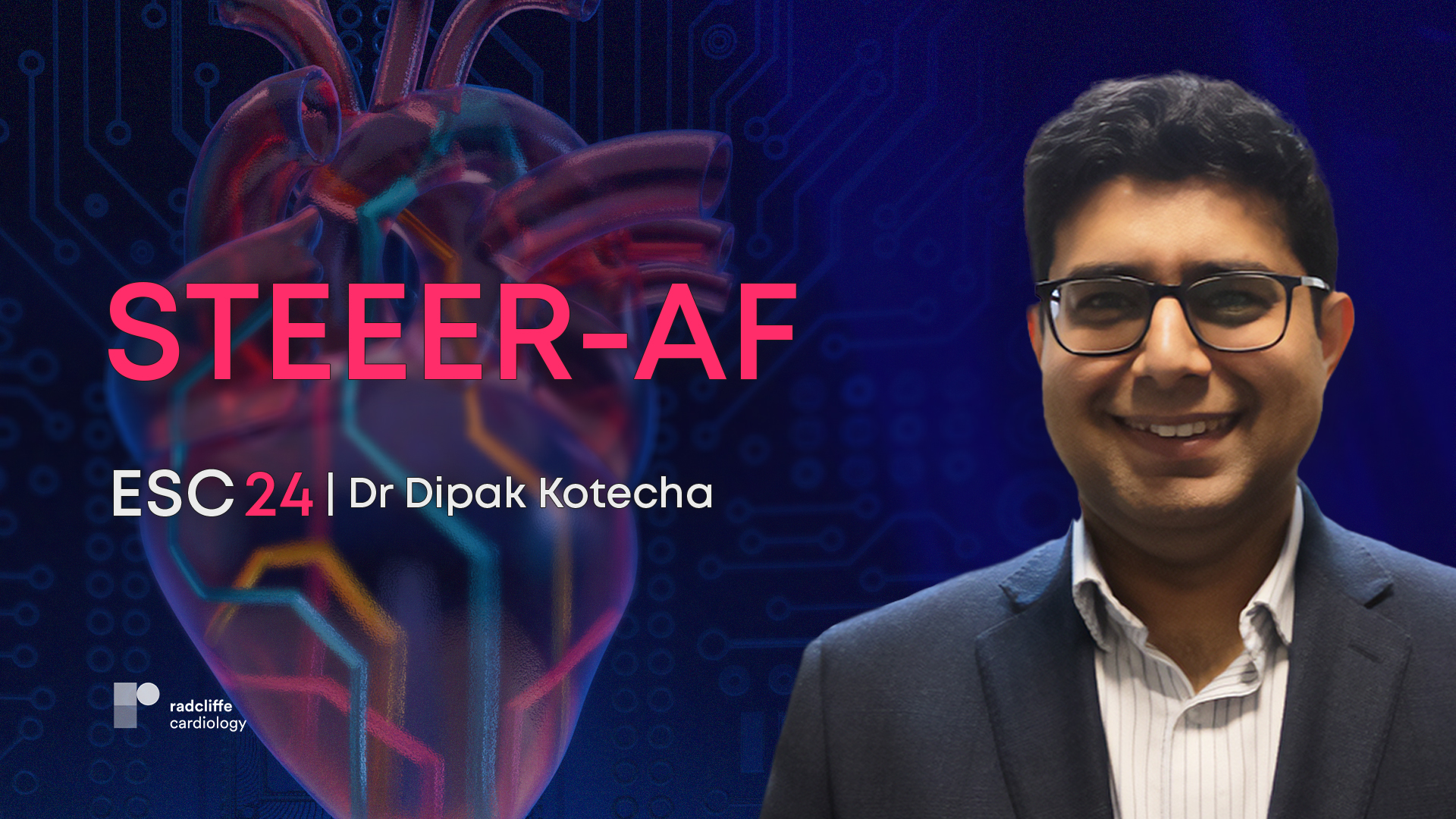 8m 18sPart 4 | Session 5 STEEER-AF: Stroke Prevention & Rhythm Control Therapy Dipak Kotecha
8m 18sPart 4 | Session 5 STEEER-AF: Stroke Prevention & Rhythm Control Therapy Dipak Kotecha
-
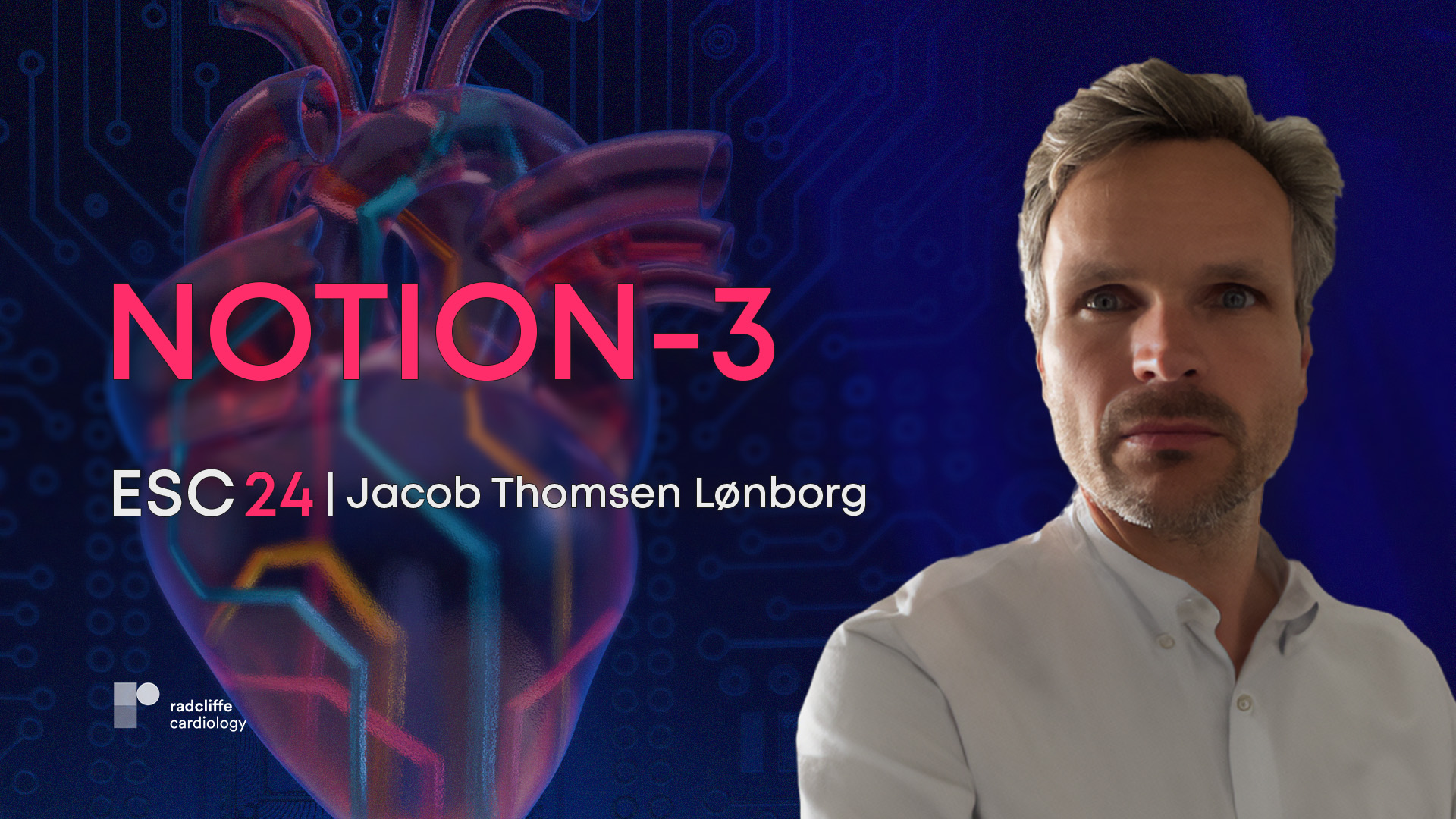 3m 52sPart 4 | Session 6 NOTION-3: FFR Guided PCI in TAVI Jacob Thomsen Lønborg
3m 52sPart 4 | Session 6 NOTION-3: FFR Guided PCI in TAVI Jacob Thomsen Lønborg
Overview
What's hot at the ESC Congress 2024?
Stay ahead of the curve with our faculty-led coverage of the European Society of Cardiology Congress in London. From groundbreaking trials to expert insights, we've got you covered.
- Watch our View From the Thoraxcenter series for practice-focused reviews of the most anticipated trials from interventional experts, Prof Nicolas Van Mieghem and Dr Joost Daemen.
- For a deeper dive into key hot line clinical trial data and its applicability, host, Dr Harriette Van Spall meets with principal investigators in her Late-Breaker Discussion series.
- View a condensed summary of the crucial takeaways from each day in our Wrap-Up series led by Dr Mirvat Alasnag.
- Our short, bite-sized Expert Interviews with select faculty will focus on data, take-home messages for practice and the future of their field.
Get ready for a deep dive into the latest cardiology research. Our coverage of the ESC Congress is coming soon.
More from this programme
Part 1
View From the Thoraxcenter: What's Hot at ESC 24?
Part 2
Daily Wrap Ups with Dr Alasnag and Dr Al-Shaibi
Part 3
Hot-line Discussions with Dr Harriette Van Spall
Part 4
Expert Interviews
Part 5
Highlights
Part 6
Guidelines
About the episode
ESC Congress 2024 — Edoxaban monotherapy significantly improves outcomes in high-risk patients with CAD and atrial fibrillation.
Investigators, Dr Gi-Byoung Nam (Ulsan University Hospital, Ulsan, SK) and Dr Min Soo Cho (Asan Medical Center, Seoul, SK) join us to discuss the key findings from the EPIC-CAD trial (NCT03718559).
This Korean multi-centre, open-labelled, randomised controlled study investigated the effectiveness and safety of edoxaban monotherapy compared to edoxaban combined with an antiplatelet agent in 1040 patients with stable coronary artery disease (CAD) with a stenosis of at least 50% on medical management or post-revascularisation (at least 12 months after acute coronary syndrome or 6 months after stable CAD), and who also have a high risk of atrial fibrillation (CHA2DS2-VASc score ≥2). The primary outcome measure was a composite of clinical events at one year.
Findings showed that edoxaban monotherapy significantly reduced the risk of a net composite outcome of death by any cause, stroke, systemic embolism, myocardial infarction unplanned revascularisation and major or clinically relevant non-major bleeding at one year after revascularisation by 56% compared with dual antithrombotic therapy.
Interview Questions:
- What is the importance of this trial?
- What was the study design, eligibility criteria and outcome measures?
- What were the baseline characteristics of randomised patients?
- What are the key findings? (Safety and efficacy)
- Were there any significant differences in treatment effect between pre-specified sub-groups of patients?
- What conclusions can be made for practice?
- What are the next steps?
Recorded on-site at ESC Congress 2024, London.
Editors: Jordan Rance and Mirjam Boros.
Videographers: Mike Knight, Dan Brent, Oliver Miles, Tom Green, David-Ben-Harosh.
Support: This is an independent interview produced by Radcliffe Cardiology.






Comments